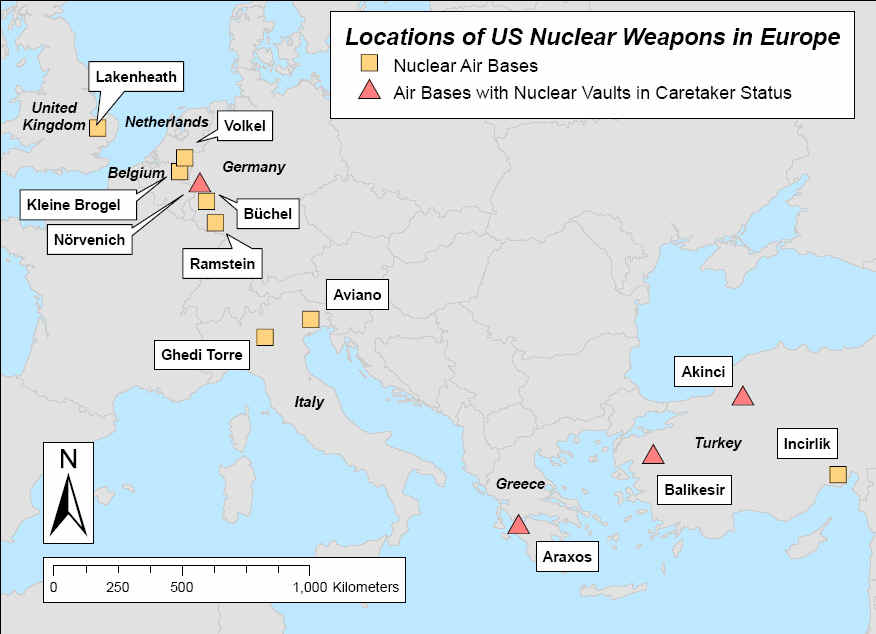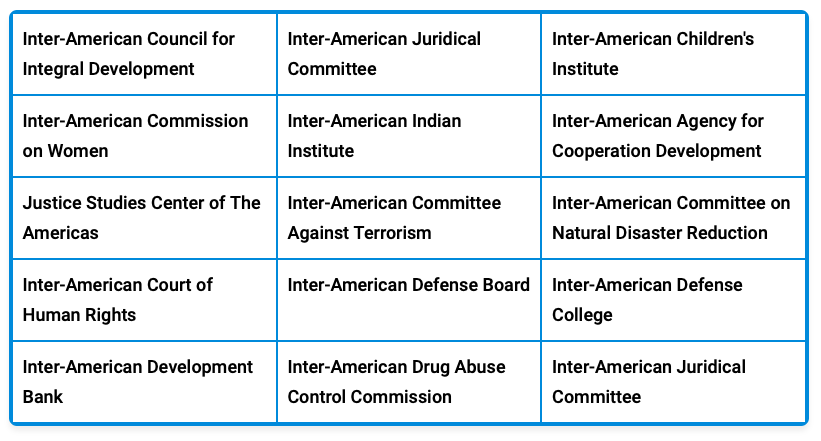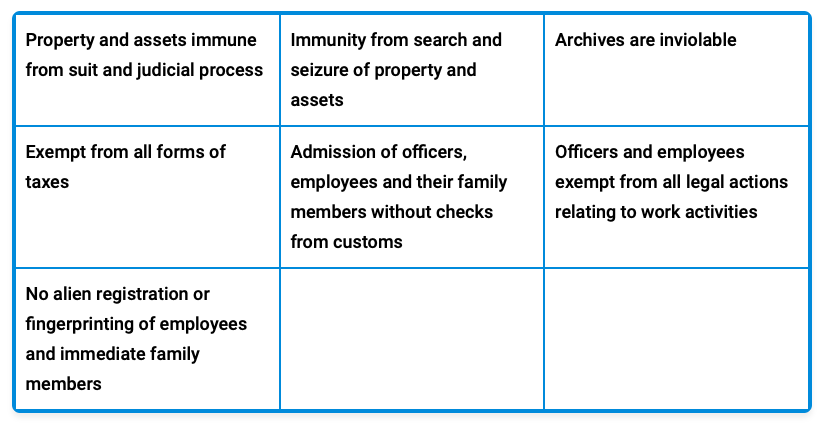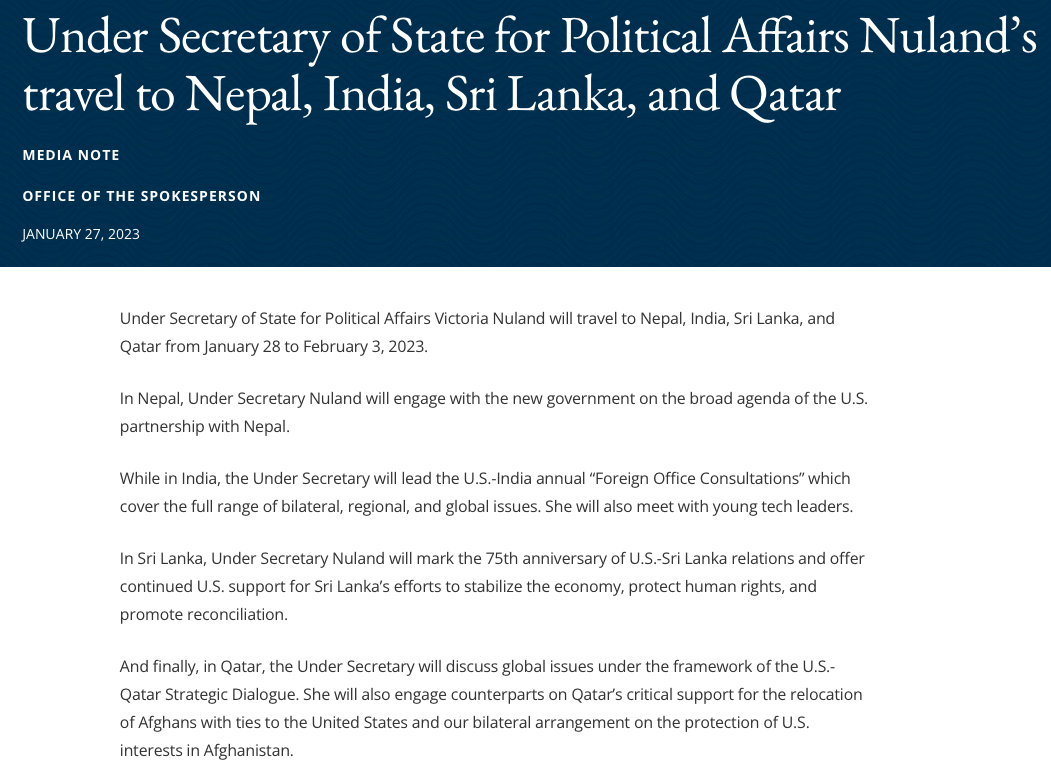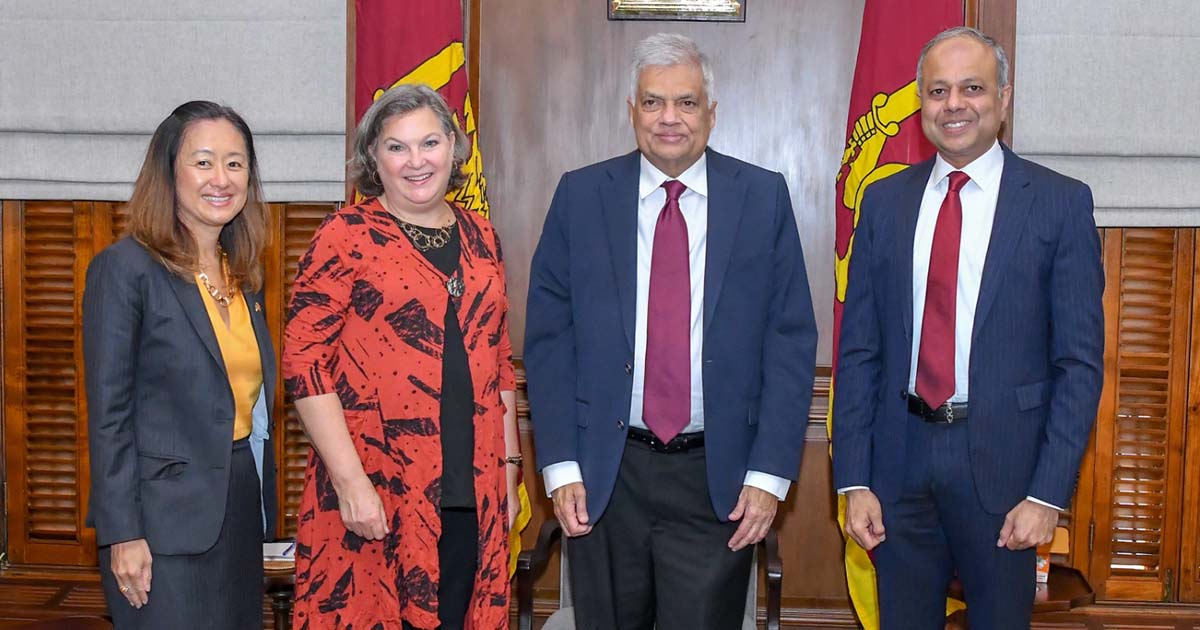All Global Research articles can be read in 51 languages by activating the Translate Website button below the author’s name.
To receive Global Research’s Daily Newsletter (selected articles), click here.
Follow us on Instagram and Twitter and subscribe to our Telegram Channel. Feel free to repost and share widely Global Research articles.
First published on March 22, 2023
***
Preamble
The present conflict between Russia and Ukraine is arguably the culmination of the foreign policy pursued by the United States of America since the ending of its ideological Cold War with the Soviet Union.
Undergirded by a resolute belief in ‘American Exceptionalism’ and steered by neoconservative ideologues working in concert with the interests of the Military Industry, successive administrations have waged a form of hybrid warfare against the Russian Federation, the successor state to the dismantled Soviet Union. This encompasses military, economic and informational dimensions.
However, this strategy has not led to the desired weakening of Russia and the surrender of its sovereignty; the goal being to reduce the Russian state to one that is solely dedicated to servicing the energy needs of the West. Instead, the policy, encapsulated in what is referred to as the ‘Wolfowitz Doctrine’, the post-Cold War resolve that no power be allowed to rise and be able to compete economically and militarily with the United States, has engineered a de facto alliance between resource-rich Russia and the rising global economic powerhouse of China.
The Russia-China alliance represents the ushering in of a new Eurasian world, the very thing that decades of Western global policy shaped by the geostrategic thesis of Halford Mackinder has sought to avoid.
Thus, U.S. policy towards Russia has not consolidated the unipolar world it found itself in after the fall of the Soviet Union but has in fact hastened the diminution of its power and influence, thus assuring the transformation of the global order into one of multipolarity.
The Background: “The End of History”
Any proper documentation and analysis of the conflict between Russia and Ukraine, as well as the ongoing fissure between Russia and China on the one hand, and the Western world on the other, must begin with the period covering the ending of the ideological Cold War between the United States and the Soviet Union.
The collapse of the Soviet Union, which came with the declaration of independence by some of its constituent soviet republics such as Ukraine, Georgia and the Baltic States, as well as the de-Sovietisation of Eastern Europe, was bound to create a new global order. Much would depend on the United States, the sole remaining world power, as to how this new state of affairs would take shape. It had as an option recourse to its foundational precepts as a republic which cautioned against entangling alliances to pursue a course of isolationism. The withering away of the Soviet Union and prior to that, the dissolution of the Warsaw Pact, opened up the possibility that the U.S. led-North Atlantic Treaty Organisation (NATO) would be disbanded and a new security architecture developed on the continent of Europe including Russia. This fresh, innovated pan-European set up could have developed out of the framework of the Organization for Security and Co-operation in Europe (OSCE) and might have included an economic dimension centred on measures aimed at integrating the German economy with that of Russia; a development of Ostpolitik.
This did not happen.
Describing the development as “the unipolar moment”, Charles Krauthammer argued the case for a “serenely dominant” United States which would not withdraw into its hemisphere and act as one bastion of power in a multipolar world.1 For some like Francis Fukuyama, a political scientist, the fall of the Soviet Union represented the “end of history”. According to Fukuyama, history was characterised as a struggle between ideologies, and liberal democracy had triumphed over all others.2 His views were readily adopted by those who identified with the neoconservative school of thought. These intellectual descendants of Wilsonian idealism and fervent believers in American Exceptionalism were already deposed to be promoters of democracy. Thus, in the aftermath of the victory of liberalism and free market capitalism over Marxism, the United States, they argued, should proceed to mould the world in its image.
This line of thinking came to be reflected in the theorising and application of U.S. foreign policy. The idea that America should operate as the sole global hegemon is reflected in the so-called “Wolfowitz Doctrine”; named for Paul Wolfowitz, the U.S. Under Secretary of Defense for Policy during the administration led by President George H. Bush.
The overarching objective of the Defense Planning Guidance for the 1994–99 fiscal years which was published in February 1992 by Wolfowitz and Scooter Libby for internal consumption was that the United States would use the vacuum caused by the breakup of the Soviet Union as an opportunity to prevent the rise of any nation attempting to take up the mantle of a global competitor.3In seeking to achieve this, it explicitly disavowed being bound by multilateral agreements and envisaged destroying by military action or the application of economic pressure any nation which operated in a way which was inimical to America’s declared political and economic interests.
The influence of adherents to the neoconservative ideology, as well as those promoting the interests of military contractors, has loomed large in American military action, both overt and covert in the invasions of Afghanistan in 2001 and of Iraq in 2003, NATO’s destruction of Libya in 2011 and the covert attempt to overthrow the Ba’athist government of Syria which also commenced in 2011. Neoconservatives have also been in the vanguard of calling for the United States to attack Iran.
It was to neoconservative ideologues that Wesley Clarke, a retired 4-star U.S. Army general and supreme commander of NATO, was referring when in 2008 he spoke of a “policy coup” in the immediate aftermath of the attacks of September 11th 2001, in which a group of “hard-nosed people took control of policy in the United States.”4 Clarke spoke of a visit that he made to the Pentagon while preparations were afoot for the ‘police action’ that would be taken in Afghanistan. A former colleague had shown him a classified document which set out a plan to attack and destroy “seven countries in five years”. They included Iraq, Libya, Syria and as Clarke would state, the programme was scheduled to “start with Iraq and end with Iran”.
The rationale for mounting attacks on the aforementioned countries was not immediately decipherable given that the official perpetrators of the 9/11 attacks were extremists of Sunni Islam, whereas Iraq, Libya and Syria were run by secular nationalist governments and Iran is a predominantly Shia nation. But neoconservative followers are instinctive supporters of the State of Israel and each country was hostile to Israel.
Earlier during the 1990s the Project for the New American Century (PNAC), an important neoconservative think tank led by Robert Kagan and William Kristol, had specifically subscribed to the idea of the United States shaping the global framework to its advantage by bolstering its military expenditure and positioning itself to resolutely “challenge” regimes which were hostile to its “interests and values”. The countries featured among the list of hostile states were Iraq, Syria and Iran.
Unsurprisingly, those states which are powerful enough to challenge the United States either militarily or economically are within the crosshairs of the neoconservatives. In 2006, Kagan identified Russia and China as the greatest “challenge liberalism faces today”. It is worthwhile noting that Kagan is the husband of Victoria Nuland, the American State Department official who has been closely associated with America’s use of Ukraine as an anti-Russian proxy and the Kagan family are at the helm of the Institute of War, one of the many well-resourced neoconservative think tanks which congregate around Washington D.C.
The uncompromising and belligerent approach of the neoconservative mindset is captured in Robert Kagan’s thesis that “Americans are from Mars and Europe is from Venus”, which he postulated in his book Of Paradise and Power: America and Europe in the New World Order, published in 2003.5 There Kagan controversially viewed Europeans as favouring peaceful resolutions in contrast to the American penchant for resorting to violence.
It is also important to note that while Wesley Clark asserted that American foreign policy had been “hijacked” and that there had been no public debate about the “policy coup”, Jeffrey Sachs, a prominent American economist and academic, considers the conflict in Ukraine to be the latest in a line of neoconservative-inspired foreign policy disasters.6
But it is also clear that forces other than neoconservative ideologues who have been well-represented in successive administrations are not alone in perpetuating America’s cycle of endless wars. The military industry and an accompanying ‘Deep State’ establishment is a responsible but unaccountable facet of this continuum of militarism despite the changes of administration. In 2014 Michael J. Glennon, a professor of international law at Tufts University, offered some explanation in a lengthy journal article-turned-book entitled “National Security and Double Government”.7 Borrowing from the writings of the 19th century English constitutionalist Walter Bagehot about a hidden government, Glennon posited that the unbending trajectory of U.S. foreign policy came from a powerful but unacknowledged evolved institution that he designated as ‘Trumanite’. The Trumanite Institutions are composed of ex-military, security officials and other vested interests associated with the military industry and the intelligence services who he argued run national security policies at the expense of the ‘Madisonian’ institutions; that is, the separated organs of state which function to constitutionally check the power of each other and who are accountable to the electorate.
It would be remiss not to add the influence of Zbigniew Brzezinski, a one-time U.S. National Security Adviser, on the conduct of American foreign relations. Although not a part of the neoconservative movement, he endorsed the view that no power should be allowed to rise and challenge American supremacy over the globe. A major part of his focus was on Russia. In his bookThe Grand Chessboard Brzezinski set out his views on how Russia should be militarily intimidated and economically weakened to achieve the goal of breaking it up as a nation or otherwise reducing it to a state of vassalage, with its role being restricted to that of supplying the energy needs of the West.8
The pressures applied by successive U.S. administrations on Russia have been three-pronged: military, economic and informational. As the late Professor Stephen Cohen argued, Western pressure has been demonstrably proactive and Russia’s actions largely reactive. These pressures are informed by the policy which germinated in the post-Cold War environment and applied by many political actors imbued with the neoconservative mindset who are supported by ‘Trumanite’ institutions including the burgeoning Military Industrial Complex of which President Dwight D. Eisenhower warned the American people in his farewell address of January 1961.9
It is only when bearing all of this in mind that the tensions between the United States on the one hand, and Russia and China on the other, can be properly understood.
The Military Dimension: “Not one-inch eastwards”
The first line of military-related pressure which has been applied against Russia is one that lies at the heart of the Russia-Ukraine conflict. This has been the decision to expand NATO to Russia’s borders. When expansion was first touted by the administration of President Bill Clinton in the 1990s, it raised protests from the Western-friendly government of President Boris Yeltsin. Yeltsin’s successor, President Vladimir Putin whose government assumed a more nationalist posture than that of Yeltsin, made it clear after the incorporation of the Baltic States, Poland and others that further expansion to Ukraine and Georgia would constitute a ‘redline’.

Michail Gorbachev discussing German unification with Hans-Dietrich Genscher and Helmut Kohl in Russia, July 15, 1990. (Photo: Bundesbildstelle / Presseund Informationsamt der Bundesregierung)
The Russians have contested the enlargement of NATO as presenting not only an existential threat to their country, but also as an abrogation of an agreement reached by the leaders of the United States and the Soviet Union at the end of the Cold War. The substance of this uncodified accord was that in return for allowing the reunification of Germany, which would automatically become a member of the Atlantic Alliance, the United States gave assurances to Soviet leader Mikhail Gorbachev that NATO would not expand “an inch” eastwards. There is an ample trail of evidence in the form of documents and oral histories which confirm that a consensus was reached.10 Moreover, to detractors who claim that the absence of a formal treaty represents a delegitimising effect, it is worth pointing out that a precedent for an analogous agreement between both superpowers existed. This was the secret agreement reached after the Cuban Missile Crisis under which the United States would undertake not to invade Cuba in return for the promise by the Soviets to refrain from supplying weapons of the sort which could endanger the United States. The secret protocol accompanying the withdrawal of Soviet missiles from Cuba also involved the withdrawal of U.S. Jupiter ballistic missiles from Turkey.
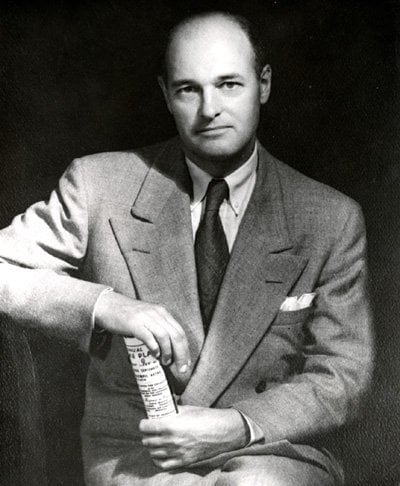 The threat of NATO expansion and its consequences was addressed by no less of a figure than George F. Kennan, the architect of the Cold War policy of Soviet containment. In an opinion piece titled “A Fateful Error” which was published in the New York Times on February 5th, 1997, Kennan described the plan for enlargement as “the most fateful error of American policy in the entire post-Cold War era.”11 Troubled and perplexed by an endeavour certain to transform Russia from partner to foe, he wrote: “Why, with all the hopeful possibilities engendered by the end of the Cold War, should East-West relations become centred on the question of who would be allied with whom and, by implication, against whom in some fanciful, totally unforeseeable and most improbable future military conflict?”
The threat of NATO expansion and its consequences was addressed by no less of a figure than George F. Kennan, the architect of the Cold War policy of Soviet containment. In an opinion piece titled “A Fateful Error” which was published in the New York Times on February 5th, 1997, Kennan described the plan for enlargement as “the most fateful error of American policy in the entire post-Cold War era.”11 Troubled and perplexed by an endeavour certain to transform Russia from partner to foe, he wrote: “Why, with all the hopeful possibilities engendered by the end of the Cold War, should East-West relations become centred on the question of who would be allied with whom and, by implication, against whom in some fanciful, totally unforeseeable and most improbable future military conflict?”
Kennan was not alone. Testifying before a Senate hearing in 1997, Jack Matlock, a former United States Ambassador to the USSR said the following:
“I consider the administration’s recommendation to take new members into NATO at this time misguided. If it should be approved by the United States Senate, it may well go down in history as the most profound strategic blunder made since the end of the Cold War.”12
Another noteworthy observation made in the same year came from a prominent U.S. senator of the Democratic Party named Joe Biden who predicted that NATO’s expansion to the Baltic states would elicit a “vigorous and hostile” response from Russia.13 And if the response by the Yeltsin government while negative nonetheless fell short of the threat of a military response, a decade later Vladimir Putin bluntly informed those present at the 2007 Munich Conference that statements made by members of the administration headed by George W. Bush calling for the co-opting of Georgia and Ukraine into NATO were the final straw and that their inclusion within the Atlantic Alliance would be a “redline”.14
Such a policy rang alarm bells with Willian J. Burns, then the U.S. Ambassador to Russia who in a classified memorandum dated February 1st, 2008, and titled “Nyet Means Nyet: NATO’s Enlargement Redlines” advised that
“Ukraine and Georgia’s NATO aspirations not only touch a raw nerve in Russia, they engender serious concerns about the consequences for stability in the region.” He added “Not only does Russia perceive encirclement, and efforts to undermine Russia’s influence in the region, but it also fears unpredictable and uncontrolled consequences which would seriously affect Russian security interests.”15
The threatened expansion via Georgia and Ukraine have led to overt Russian military intervention respectively in 2008 and 2022. Both touch a raw nerve Georgia, the birthplace of Josef Stalin, is like Ukraine bordered next to Russia on land and the Black Sea. Ukraine, which is historically, ethnically and linguistically kindred with Russia, presents from the Western perspective a particularly serious threat to its security because its land mass extends ‘into’ Russia such that its furthest borders are only 450 miles from Moscow. The implications of NATO placing nuclear missiles which could reach the Russian capital in minutes go without saying.
 Thus using Ukraine as a lever in a geopolitical contest with Russia has been a significant aspect of the neoconservative doctrine in pressuring Russia. The doctrine espoused by Zbigniew Brzezinski also positions Ukraine as a vital part in confronting and neutralising Russia. He believed that Russia cannot be a power without Ukraine.16
Thus using Ukraine as a lever in a geopolitical contest with Russia has been a significant aspect of the neoconservative doctrine in pressuring Russia. The doctrine espoused by Zbigniew Brzezinski also positions Ukraine as a vital part in confronting and neutralising Russia. He believed that Russia cannot be a power without Ukraine.16
A second way by which the United States has sought to pressure Russia has been the dismantling of the nuclear weapons regulatory treaties which were painstakingly built up during the Cold War.17
Global catastrophe averted after the Cuban Missile Crisis of October 1962, both superpowers eschewed their serious divisions by embarking on meetings which sought to diffuse tensions. In 1963, they signed the Limited Nuclear Test Ban Treaty.18 More would come in the following decade. President Richard Nixon signed the Anti-Ballistic Missile Treaty (ABM),19 as part of the Strategic Arms Limitation Treaty (SALT) in 1972, and in 1979 President Jimmy Carter signed the SALT II treaty.20 Although not ratified by Congress because of the Soviet invasion of Afghanistan, the United States nonetheless abided by its terms until its expiration. The next major agreement was the Intermediate-Range Nuclear Forces Treaty (INF) of 1987 signed by President Ronald Reagan just before the Cold War ended.21The Open Skies Treaty (OST), which had its origins from negotiations between the members of NATO and the Warsaw Pact was signed in 1992 although it did not become effective until January 1st, 1992.22
Then came the policy shift which coincided with the rise in influence of neoconservative figures in successive administrations as well as the entrenchment of the vested interests of the National Security State. First, the United States withdrew from the Anti-Ballistic Missile (ABM) treaty in 2002 under the administration led by President George W. Bush.23 Bush also adopted a missile shields policy. Then under President Barack Obama, the first of the anti-ballistic missiles began to be deployed in countries close to the Russian border.24 It was under the watch of President Donald Trump in 2019 that the United States withdrew from the INF treaty,25 and prior to the end of his one-term administration, America also left the Open Skies Treaty.26
The encircling Russia with missile shields from Eastern Europe through to Asia and Alaska along with the existing placements of nuclear ballistic weaponry have only served to provoke Russia and ratchet up tensions.27
Military provocation against Russia has occurred in a third way which is not unrelated to the hovering threat to Russia of NATO expansion. This has come from arming both Georgia and Ukraine. In the case of Georgia, its then President Mikhail Saakashvili who was emboldened by promises made by the likes of the late Senator John McCain that it would be allowed to join NATO, decided to attack neighbouring South Ossetia.28 What followed was a war in which Russia allied with Ossetian and Abkhazian separatists fought the Georgian military. After a two-month occupation of large swathes of Georgian territory, the Russian armed forces withdrew. In Ukraine where a battle for influence between the United States and Russia had subsisted for a considerable time, the 2014 overthrow of President Viktor Yanukovych,29 considered to be ‘pro-Moscow’ by the West, brought to power a Russophobic regime in Kiev which provoked a civil conflict between the central government and the Russian-speaking oblasts of the Donbas region of eastern Ukraine. Again it would provoke a Russian response, first through the provision of covert support for the Donbas separatist militias in Donetsk and Luhansk, which was followed eight years later by what the Russian’s termed a Special Military Operation.
The thinking behind the policies of NATO expansion and the disavowing of nuclear treaties is to force Russia into an arms race with the object of placing strains on the Russian economy. And the war in Ukraine in which the United States and the EU have supported the government in Kiev is geared towards “bleeding Russia” dry.30
The Economic Dimension: “Nord Stream must end”
Economic pressures including outright economic warfare by the punitive tool of sanctions represents another dimension through which the United States-led West has sought to weaken post-Soviet Russia. The late Professor Stephen Cohen summarised the overall pattern of relations between both as one of proactive conduct on the part of the United States with Russia being largely reactive. This has meant that Russian reactions to Western provocations such as the United States-sponsored Maidan coup in Kiev in February 2014 have given the West the opportunity to respond by imposing sanctions. In the case of the Maidan coup, the Russian response of protecting its Black Sea Fleet in Sevastopol consisted of initiating a referendum in Crimea to provide the basis of its annexation in March 2014.31
The sanctions imposed by the United States, Canada and the European Union (EU) in July 2014, which were strengthened in September of that year, had three objectives. One was to restrict Russian access to Western financial markets. Another was to place an embargo on the export of technology and the third was to prevent the export of military goods and those capable of being adapted for military purposes. Russia responded by imposing a ban on food imports from Western nations.32
The imposition of sanctions has always affected European businesses more than their counterparts in America. In 2014, Klaus-Jürgen Gern, an economist at the Kiel Institute for the World Economy, stated unequivocally that “Germany’s economic interests would be best served by avoiding sanctions.” German business leaders have consistently registered their objections to political leaders. These have been based not merely on the question of financial self-interest but on the realisation that the U.S.-led policies have been based on aggression rather than diplomacy. As Eckhard Cordes, a prominent businessman, told a conference in Berlin, “If there’s a single message we have as business leaders, then it’s this: sit down at the negotiating table and resolve these matters peacefully.”33
German acquiescence to American anti-Russian policies and measures has always been understood to be a key element in successfully weakening Russia. Without active German participation, all forms of punitive measures against Russia would be bound to fail. Over the decades, Germany’s increased use of relatively inexpensive Russian oil and gas, a significant factor in its continued economic success, became a sore point of contention in the United States. Eschewing the logical inference that increased trade among nations helps to keep the peace, the decades old attitude among American policymakers was to insist that increased consumption of Russian oil would lead to greater European dependence on Russia which would make them vulnerable to blackmail. Therefore successive U.S. administrations consistently sought to cajole the Germans and other European countries to lessen their use of Russian gas.
The interrelationship between the United States and its European allies over the construction of Russian-originated pipelines and the use of sanctions presents an interesting and illuminating study of the use of American power and influence. Long before the controversies associated with the Nord Stream pipeline, the United States sought to stop the construction of the first natural gas pipeline from Siberia (the Urengoy Pipeline) in 1981. The administration led by President Ronald Reagan instituted sanctions first by issuing a ban on the sale of American technology to the Soviet Union and by broadening this later to include the sales of equipment produced by foreign subsidiaries and licensees of American manufacturers.34
But the American plan to stall the building of the pipeline met with resistance from European leaders who claimed that abandoning the project would cost jobs. Others asserted that the sanctions violated international law. Prime Minister Margaret Thatcher of Britain noted that “the question is whether one very powerful nation can prevent existing contracts from being fulfilled. I think it is wrong to do that”. And at a meeting in June 1982, leaders of the European Economic Community (later the European Union) issued a communique which complained that the policies of the Reagan administration seriously jeopardised the maintenance of the open world trade system.35
American sanctions were also met with defiance by West German and French companies who had the full backing of their political leaders. The West German AEG-Kanis shipped the first two of 47 turbines to the Soviet Union at the beginning of October 1982 while Dresser-France, a subsidiary of the American firm Dresser-Clark dispatched several compressors made with American technology to the Soviets in August.36
The level of pushback from America’s European allies against American attempts at coercing them to sanction the USSR contrasts markedly with the contemporary situation. Europe today lacks the kind of independent-thinking and independent acting leadership provided by the likes of President Charles de Gaulle, who removed France from NATO’s military command structure and Willy Brandt, who although a proponent of Western European Unity and a friend of the United States, was a promoter of Ostpolitik and detente. In the spirit of Ostpolitik, Brandt’s successor Helmut Schmidt pushed on with the pipeline deal.37
Today, German, French and British leaders conduct a relationship with the United States which is more akin to vassalage than partnership. The lack of strong leadership has arguably led to the lack of restraint on the aggressive and disastrous foreign policy adventures undertaken by NATO, as well as the handling of relations with Russia. It meant that the leaders of the Germanand French governments disingenuously served as guarantors of the Minsk accords designed to bring peace to Ukraine where a civil war had been kickstarted by the United States sponsored coup in Kiev. In December 2022 Angela Merkel admitted that the Minsk agreements were entered into as a means of buying time so that Ukraine could build up its armed forces.38 Her counterpart Francois Hollande made the same admission soon after.39 The predictable Russian intervention, a limited action designed to resume negotiations, led to peace meetings between Russian and Ukrainian delegations, but were sabotaged by the proactive efforts of the United States and Britain, and presumably by the inaction of the present German leader.
Nord Stream 2, the latest Russia to Germany pipeline via the Baltic Sea, was finally cancelled after years of criticism by successive U.S. administrations. President Joe Biden, Secretary of State Anthony Blinken and Victoria Nuland, the Under Secretary of State for Political Affairs made belligerent statements related to putting an end to Nord Stream. Its sabotage by a Special Forces military effort which was almost certainly carried out by the United States to guarantee that Germany, its economy severely distressed by the extraordinary regime of sanctions imposed by the EU, would have no avenue of reversing its support for the U.S.-directed economic war against Russia. Despite the strong evidence of U.S. involvement in this act of international terrorism, it has been met with little comment by Germany’s political leaders.40
The ‘shock and awe’ sanctions imposed by the United States and its European allies, designed to sink the Russian economy and bring about the overthrow of Vladimir Putin, have proved to be a spectacular failure. As the economist J.K. Galbraith outlined in May 2022, Russia has survived because it is a self-sufficient nation which has developed an industrial base.41
The Informational Dimension: “Putin as the new Hitler”
The economic and military pressures placed on Russia have been supplemented by a campaign using the Western dominated ‘soft-power’ of the media which has consistently demonised the Russian leader Vladimir Putin and his country. Putin, whose portrayal is based on that of an oriental-style dictator, is often referred to in the press as an “ex-KGB thug”42 and as a “new Hitler”.43 Speaking in 2017, Stephen Cohen felt that American media accounts of Putin were “tabloid, derogatory, libellous” and “without context, evidence or balance”.44 Cohen argued that “falsely demonising” the Russian leader made the new Cold War even more dangerous.45 Western leaders who meet him have indulged in pseudo-psychological examinations of what they perceived to have ‘seen’ when they looked into his eyes. Although George W. Bush opined a neutral stance by saying that he got a “sense of his soul”,46 Joe Biden differed and claimed that in a 2011 meeting with Putin, he told him “I don’t think you have a soul”. Biden found them to belong to “a killer”47 while French President Emmanuel Macron perceived “a sense of resentment”;48 a condition which some argued made Putin “more aggressive and unpredictable than ever”.49
The resentment to which Macron refers was, he claimed, directed at the Western world including the EU and the United States, which Putin felt was seeking to “destroy Russia”. Although Macron went on to deny that France sought to destroy Russia, he was actually projecting an historical and contemporary truth since the basis of Putin’s rise to power from a municipal official in the city of St. Petersburg to president of his nation was linked to the chaotic circumstances of the 1990s when under the rule of Boris Yeltsin the Russian economy was looted during the economic shock treatment presided over by an American team of advisers who were overseeing Russia’s transformation from a Soviet planned economy to a Western free market model. 50
However, the efforts of the team that came to be known as the ‘Harvard Boys’ led to the wholesale plunder of Russia’s wealth and resources, a large amount of which was spirited abroad and a significant portion of which accumulated into the hands of a few billionaires who came to be known as oligarchs. Living standards plunged, the death rate increased and inflation ran riot. An aura of lawlessness and general insecurity was prevalent.51
It is Vladimir Putin who is credited with bringing this latter day Smutnoe Vremya (‘Time of Troubles’) to an end. Putin brought stability to the economic freefall and moved against oligarchs such as Mikhail Khodorkovsky who were closely connected with Western business interests. Khodorkovsky, who had political ambitions, was on the verge of selling a large percentage of stock in the giant Yukos Oil Company to his powerful Western associates when Putin manoeuvred to have the company assets frozen and Khodorkovsky jailed. While Khodorkovsky planned to use his wealth to buy political power in the 2004 elections through which he would be able to change Russian laws pertaining to the ownership of oil in the ground and the pipelines which carried oil, Putin’s objective was to have the company reverted to state ownership to be used as a valuable source of revenue to be used in rebuilding the wrecked Russian economy.52
If Putin is resentful of the West, it would not be without reason given the circumstances in which Russia was subjected to a period of economic colonisation by Western interests as well as the aforementioned military and economic pressures. It is under these circumstances during which the nationalist Putin, in contrast to the pliant Yeltsin, has sought to pursue Russia’s interests one result of which has been the campaign of demonisation not only of Putin but of the Russian nation. This has been reflected in the words of Western politicians, public servants and policymakers. To James Clapper, a former U.S. Director of National Intelligence, Russians “typically, are almost genetically driven to co-opt, penetrate, gain favour”.53 And John Brennan, a former director of the Central Intelligence Agency (CIA), once warned that Russians “try to suborn individuals and they try to get individuals, including US citizens, to act on their behalf either wittingly or unwittingly”.54 A columnist for the British Guardiannewspaper opined that Russia is a “gangster’s paradise” gangsterism on the streets had given way to kleptocracy in the state.55
Russians are also characterised as a monolithic people willingly held in the thrall of an oriental-type tyrant. It is a country where public opinion has been characterised as “mob’s opinion”.56 And the accepted view of Russia as an abnormal country with a predisposition to deviancy in the realm of international relations was reflected by Anne Applebaum, a neoconservative writer, as “an anti-Western power with a different, darker vision of global politics…(a) norm-violating power.”57
It is under these circumstances that American political leaders have resorted to the use of language which would be unthinkable even during the bitterest periods of the ideological contest between the United States and the Soviet Union. The late Senator John McCain, who coined the phrase that Russia was “a gas station masquerading as a country”, once casually made a tweet which by inference was that Vladimir Putin was deserving of a fate similar to that of Libyan leader Colonel Muamar Gaddafi.58Others such as his long-term senatorial ally Lindsey Graham have been more explicit. In March 2022, Graham openly called for the assassination of Putin.59
The language and tone of these utterances reflect a decline in the standard of political discourse but a diminution of statecraft and the art of diplomacy in recent times. During the ideological Cold War, the leaders of both superpowers sought to reduce tensions. They often resorted to diplomacy and were careful in their use of language in the public sphere. The opposite may be averred to be the case now with intemperate language used to increase tensions.
A summary of the approach of the United States is encapsulated in a paper presented by the RAND Corporation in 2019 which was titled “Overextending and Unbalancing Russia: Assessing the Impact of Cost-Imposing Options”. Under the heading “Ideological and Informational Cost-Imposing Measures”, it outlined a plan of attack which had the objective of diminishing the faith of the Russian people in their electoral system, creating the perception that Putin was pursuing policies not in the public interest, encouraging domestic protests and undermining Russia’s image abroad.60
The Road to the Russia-Ukraine War
It is only with insight into the geostrategic thinking of American neoconservatives and the doctrinal philosophy of Zbigniew Brzezinski who believed that Russia could not be a power without Ukraine that an assertion that the United States has chosen Ukraine as a battleground with the Russian Federation can be readily appreciated.
Contrary to the narrative provided by Western political leaders which has been faithfully disseminated by Western mainstream media, the war in Ukraine did not begin on February 24th, 2022, when President Putin launched what he termed a Special Military Operation (SMO).61 It was merely a development in a chronology of events started by NATO threats of expansion to Russia’s border. There followed a struggle for the soul of Ukraine which developed as follows: Set against a backdrop of the Ukrainian government’s mulling over whether to accept economic aid from Russia or the EU, the Maidan protests, a series of manipulated public demonstrations, culminated in an American-orchestrated coup in Kiev in February 2014. The use of certifiable neo-Nazi and ultranationalist groups in the overthrow of the democratically elected government of Viktor Yanukovych, who was viewed by the West as pro-Russian, kick-started an internal conflict between the central government and ethnic Russian Ukrainian separatists of the Donbas in the eastern part of the country. The Minsk peace accords followed: the Minsk Protocol of September 2014 and its follow up, Minsk II in February 2015. However, the failure of these accords and the continued build-up of Ukrainian military forces in the Donbas which were armed and trained by countries of NATO in a conflict which claimed an estimated 14,000 lives, ultimately led to the Russian intervention.62
That the exertion of pressure by the West within Ukraine would create the conditions for a civil war was predictable. In his internal memorandum of February 2008, Ambassador William J. Burns had noted the following in Paragraph 5(c):
Experts tell us that Russia is particularly worried that the strong divisions in Ukraine over NATO membership, with much of the ethnic-Russian community against membership, could lead to a major split, involving violence or at worst, civil war. In that eventuality, Russia would have to decide whether to intervene; a decision Russia does not want to have to face.63
Moving a few years after Burns’ memo into the 2010s, it is now clear that the United States had embarked on an operation designed to effect regime change at a time when Yanukovych was positioning Ukraine to be militarily neutral.64 The ostensibly innocuous revelation by Victoria Nuland, then the Assistant Secretary of State for European and Eurasian Affairs, that her government had “invested 5 billion dollars” in over 20 years to “develop democratic processes and reforms in Ukraine” was viewed by critics of U.S. policy as an admission to the endeavour which led to the overthrow the government of Ukraine.65 They see it as one piece of evidence pointing to a planned coup d’état which effectively came out of the same playbook that was used by the early CIA in executing the overthrows respectively of Mohamed Mossadegh of Iran in 1953,66 and Jacobo Arbenz of Guatemala in 1954.67
While the process has evolved through what may be termed the ‘privatised CIA’ as represented by organisations such as the National Endowment for Democracy (NED), the implementation of the standard ‘colour revolution’ involves mobilising protest movements through a network of non-governmental agencies which in the case of Ukraine worked assiduously towards the goal of overthrowing Yanukovych. The details of this aspect of the covert action has yet to come to light as has been pointed out by Dr. Jeffrey Sachs, but he has revealed in both his writing and interviews that he had been told while on a visit to Kiev that “US NGOs spent vast sums to finance the protests and the eventual overthrow.”68
Further insight into this aspect of the illegal removal of an elected government came from the businessman George Soros. In an interview conducted by Fareed Zakaria of CNN which was broadcast three months after the coup, Soros revealed that he had “set up a foundation in Ukraine before Ukraine became independent of Russia. And the foundation has been functioning ever since and played an important part in events now.”69
Far from being the romanticised ‘Revolution of Dignity’, which followed the orchestrated Euromaidan protests, the Maidan Revolution was according to the anti-Putin geopolitical analyst George Friedman, “the most blatant coup d’état in history.”70
The decisive instrument in effecting the removal of Yanukovych was the use of neo-Nazi and ultranationalist militias such as Svoboda, Splina Sprava and Pravy Sektor.71 Indeed, Yevhen Karas, the leader of C14, an off-shoot of Svoboda’s youth wing, once claimed that without this input, the Maidan protests would have been little more than a “gay parade”.72
The violent intercession by these groups in street encounters were accompanied by a mysterious armed group which positioned itself at vantage points from which they fired upon both protesters and police.73 This is the classic modus operandi of a secret third force mounting a ‘false flag’ operation and seeking to discredit an opponent by laying the blame on them; in this case on the Yanukovych government. An intercepted telephone conversation between Urmas Paet, the Estonian foreign minister who had recently been in Kiev, and Catherine Ashton, the EU’s foreign minister recorded Paet informing Ashton that the sniper killings in Maidan square had been carried out by “someone in the new coalition”. The result was that, fearing for his life, Yanukovych fled the country.74
But even before the coup had been completed a wiretap, presumably carried out by Russian intelligence, captured Victoria Nuland informing Geoffrey Pyatt, the US Ambassador to Ukraine, who the members of the forthcoming government of Ukraine would be. During the conversation, she dismissed any possibility of acceding to any request of restraint on the part of European allies about the trajectory the United States was taking by telling Pyatt “Fuck the EU”. Her attitude was in keeping with her husband’s thesis of Americans being “from Mars” and their European allies “from Venus”.75
Given that one key plank of Vladimir Putin’s justification for Russian intervention was what he termed the “denazification” of the Donbas, it is important to develop on the involvement of neo-Nazi and ultranationalist groups in the overthrow of the Yanukovych government, as well as in the prosecution of the civil war in the Donbas.76
As the United States prepared to follow a course of forcing regime change, it made efforts to reach out to and to co-opt ultranationalist groups into the enterprise. The use by the United States of extremist groups in covert operations related to destabilising or changing governments has a long history. Much of this has involved tapping into militant Islam,77 although recourse to the use of neo-Fascist groups in Western European countries such as Italy under the auspices of NATO’s stay-behind networks (‘Operation Gladio’) occurred during the Cold War period.78
The technique of exploiting ancient grievances and rivalries has been used in the Middle East and is now being used in Ukraine.79 Ukrainian nationalism has been traditionally predicated on anti-Jewish, anti-Polish and anti-Russian sentiment. It is at the hands of roaming Ukrainian Cossacks that many medieval Jewish communities were put to the sword. And later episodes concerned with creating a Ukrainian state during the twentieth century were accompanied by the slaughter of Jews.
Yet today the perpetrators of anti-Jewish terror, Bogdan Khmelnytsky and Maxim Zliznyak, both from the pre-modern era, and Symon Petliura and Stepan Bandera, both from the 20th century, are national heroes whose statues inhabit virtually every square in Ukraine. Bandera, whose image was highly visible during the Maidan protests, becoming something of a spiritus rector of the proceedings, is officially a national hero of Ukraine despite the number of Jews and Poles who were massacred by his OUN-B organisation during the Second World War.80
It was from OUN-B that most of the personnel was recruited into the Ukrainian legion of the German Wehrmacht which came to be known as Bataillon Ukrainische Gruppe Nachtigall. The Nachtigall and Roland battalions along with the Waffen-Grenadier-Division der SS i.e. Galician Division of the Waffen-SS, are three fighting forces lionised in Ukraine to this day despite their involvement in anti-Polish and anti-Jewish pogroms.81 The memorialisation of these groups and the National Socialist ideology is what fuels parties such as Svoboda which a 1999 report by the University of Tel Aviv labelled “an extremist, right-wing, nationalist organisation which emphasises its identification with the ideology of German National Socialism”.
A supposed rebranding in the early 2000s was not reflected in the utterances of Svoboda’s leader Oleh Tyahnybok who in 2004 spoke of the need to fight what he termed the “Muscovite-Jewish mafia” controlling Ukraine.82 The following year, Tyahnybok signed an open letter to then-President Viktor Yushchenko which called for the government to halt the “criminal activities” of “organised Jewry”.83
Yet this did not stop U.S. political leaders such as then Vice President Biden, the late Senator John McCain and Victoria Nuland from meeting, shaking hands and being photographed with Tyahnybok.84 Indeed after meeting Tyahnybok and other political figures, McCain, who had previously met Islamist figures in Libya and Syria, extolled them as “brave men and women” who “should know that they are not alone. Their friends across the world stand in solidarity with them.”85
This unholy alliance between the United States and the ultranationalist movement in Ukraine is mirrored by a similar alliance with prominent members of Ukraine’s Jewish community. For instance it is acknowledged that Ihor Kolomoisky, the Jewish oligarch who bankrolled the television career, as well as the break into politics by Volodmyr Zelensky, was responsible for the funding of private militias of the far right including the Azov Battalion and the Aider Battalion, both of which played a prominent role in the war against ethnic Russian separatists in the Donbas.86
While it is claimed that the far right have not performed well in post-2014 elections, there is little doubt that they are well-represented in the civil, security and military spheres of Ukraine. The difficulty of reconciling the fact that Ukraine has Jewish individuals serving as president, prime minister and defence minister can be partly explained by an interview Andrew Srulevitch, the ADL Director of European Affairs, conducted with Professor David Fishman, a professor of Jewish History at The Jewish Theological Seminary, who said the following:
There are neo-Nazis in Ukraine, just as there are in the U.S., and in Russia for that matter. But they are a very marginal group with no political influence and who don’t attack Jews or Jewish institutions in Ukraine.87
It is clear that in order to continue to receive the support from the United States in their struggle against Russia, anti-Jewish posturing on the part of Ukrainian ultranationalists in the military and the security services would be impractical. It is in this context that President Volodymr Zelensky gives awards to soldiers belonging to the far right Pravy Sektor and defends footballers who openly pose with portraits of Stepan Bandera. Indeed, Zelensky has referred to Ukrainian admiration for Bandera as being “cool”.88
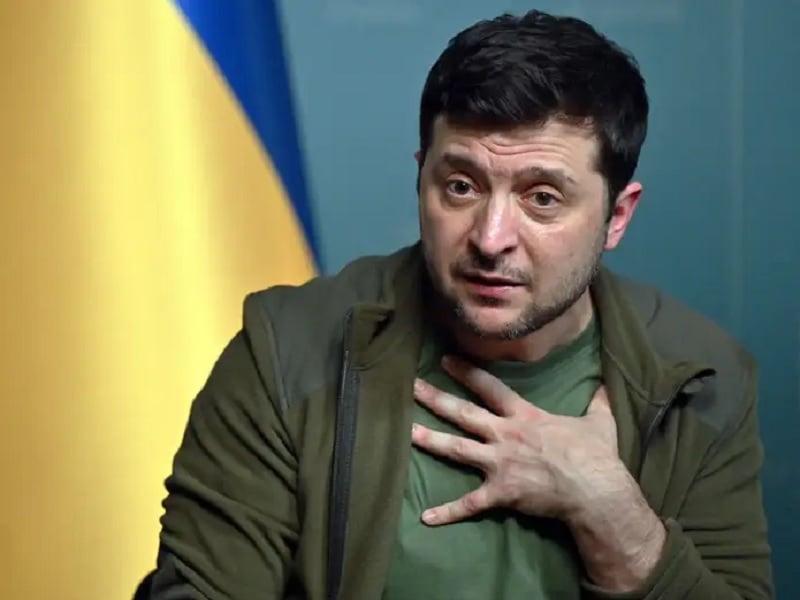 The other aspect of Ukraine’s recent political history which illuminates President Putin’s use of the term denazification pertains to the treatment of ethnic Russians since the upheaval of 2014. One of the first things undertaken by the members of the post-Maidan Duma was to relegate Russian from the position of an official language of the Ukrainian state, a step which sent alarm bells to ethnic Russian Ukrainian citizens. Later, Law No. 1616-IX on the indigenous peoples of Ukraine, which was confirmed by President Zelensky in July 2021, a piece of legislation which denied ethnic Russians the status of being an indigenous people of the country.89
The other aspect of Ukraine’s recent political history which illuminates President Putin’s use of the term denazification pertains to the treatment of ethnic Russians since the upheaval of 2014. One of the first things undertaken by the members of the post-Maidan Duma was to relegate Russian from the position of an official language of the Ukrainian state, a step which sent alarm bells to ethnic Russian Ukrainian citizens. Later, Law No. 1616-IX on the indigenous peoples of Ukraine, which was confirmed by President Zelensky in July 2021, a piece of legislation which denied ethnic Russians the status of being an indigenous people of the country.89
As was the case during the Euromaidan protests, neo-Nazi and ultranationalist militias played a major part in the early war in the Donbas when the Ukrainian Army was small. They have continued to play a major role despite the absorption of units such as the Azov Battalion, Aidar Battalion and the Ukrainian Volunteer Corps (Pravy Sektor’s paramilitary wing) into the Ukrainian Army.90
The fact that many personnel have been photographed displaying Nazi symbols is not surprising given also the influence of the Centuria secret order which has penetrated the top military academy of Ukraine.91 General Valerii Zaluzhnyi, the head of the Ukrainian Armed forces, who temporarily appointed Dmytro Yarosh as his chief advisor, has been photographed next to images of Stepan Bandera. He has also been photographed in the midst of far-right paraphernalia.92
Initially spearheaded by ultranationalist militias, the Ukrainian army developed a modus operandi of shelling civilian areas of the Donbas. The random and indiscriminate nature of these attacks contributed to the depopulation of the Donbas, with many fleeing to neighbouring Russia.93 The alienation of many of their ethnic Russian co-citizens was intensified by the attitude of former President Petro Poroshenko who in a speech given at the Odessa Opera House in October 2014, promised that while Donbas children sit in cellars “our children will go to school, to kindergartens”.94
The Special Military Operation which began on February 24th, 2022, has been characterised as an illegal invasion of Ukraine’s sovereign territory. Under Article 2 (4) U.N. Charter which states that “Every State has the duty to refrain in its international relations from the threat or use of force against the territorial integrity or political independence.”95 The case against Russian intervention would appear to be watertight given that the two exceptions, namely that of self-defence, the threat of an imminent attack, and authorisation by the Security Council were not present.
But the counter argument to this position is a compelling one. In contrast to the assessment by the U.S.-led West that its action in Ukraine is a war of aggression, the Kremlin defends its action as being not one of choice but of necessity. The Russian leadership bases its actions not on the Hitlerian solution to the crisis of the Sudetenland, but on the example provided by the West in establishing the state of Kosovo.
Firstly, as was the case with Crimea, the basis of the germinated sovereignty of the Donetsk People’s Republic and the Luhansk People’s Republic, is argued to lie in the principle of international law which caters for self-determination, namely Articles 1(2) and 51.96 The conditions which justifying the acts of secession were based on Ukrainian laws which prohibited the use of the Russian language and the expression of Russian culture, as well as the failure of the Ukrainian government to implement the aforementioned Minsk Accords and the later roadmap provided by the ‘Steinmeier formula’.
A second justification for the validity of the secession relates to the voluntariness of the referendums held, which is a point of contention between the U.S.-led West and Russia. It is also fair to note that no precise formulation or legal test exists which provides an absolute guideline indicating where self-determination overrides territorial sovereignty. But Russia argues that while the West established the state of Kosovo through the use of force, the same cannot be said of the Donbas regions.97
After years of delay, the Kremlin finally acceded to the request by the Donbas separatist entities that they be recognised as sovereign territories. Following this recognition the Russian Federation acted on intelligence reports about Ukrainian forces massing in the east of the country in preparation for launching an attack to reclaim the parts of the Donbas under control of the militias of Donetsk and Luhansk. The invitation by the separatist territories paved the way, from the Russian perspective, for the invoking of Article 51 of the UN Charter which provides that “Nothing in the present Charter shall impair the inherent right of individual or collective self-defence if an armed attack occurs against a Member of the United Nations, until the Security Council has taken measures necessary to maintain international peace and security.”98
Thus, for Russia the intervention commencing February 24th, 2022, was borne not out of choice but out of necessity, being a continuum of a state of conflict which started in 2014.
Military, economic and informational warfare during the Russia-Ukraine Conflict: The Special Military Operation, “Shock and Awe” sanctions and the “Ghost of Kiev”
The second key plank of Russian objectives in launching the SMO was to effect the “demilitarisation” of the Donbas region and the city of Mariupol where concentrations of well-armed Ukrainian forces in fortified positions were located. The small, and ill-equipped Ukrainian Army existing in 2014 was increased in size and began to be trained and armed by NATO.99 The Russians had detected a rising tone of bellicosity on the part of the Ukrainian government which by 2021 had made the objective of re-taking Crimea official military doctrine.100 Its trained-to-NATO-standard military was also the beneficiary of a marked increase in arms sales from the United States.101 In his speech to the Munich Security Conference in February 2022, President Zelensky revived the threat of joining NATO. He also suggested that Ukraine would abrogate its obligations under the Budapest Memorandum of 1994 and pursue a course of re-nuclearisation.102 The issuance of those threats alongside briefings from Russian intelligence of Ukrainian forces being poised to strike the areas of Donbas controlled by the militias of the ethnic Russian secessionists almost certainly signalled the tipping point for the Kremlin.103
The declared SMO was a limited action designed to influence the Ukrainian government to pursue peace talks and settle the questions pertaining to Donbas autonomy, Crimea’s territorial status and Ukrainian neutrality. The 200,000 troops composed mainly of the two Donbas militias and the Wagner Group of military contractors, given their total numbers, were not raised to take over the whole of Ukraine which was being actively defended by 700,000 men under arms.104 The thinking behind the actions of the Kremlin appears to have been that demilitarisation would take the form of voluntary withdrawals by Ukrainian forces or by their gradual elimination by manoeuvre warfare while anticipated peace talks progressed. Unlike the Anglo-Saxon belief that war is waged once all diplomatic efforts have failed, the Russians adhere to the Clausewitzian maxim of war being “a continuation of politics by other means”.
However, this police action failed to achieve its objective because although peace talks between Russia and Ukraine were held, the United States deliberately sabotaged them.105 Furthermore, the U.S.-led NATO support for the Ukrainian Armed Forces has led to a prolongation of the war, this especially given the Kremlin’s decision to utilise a limited amount of Russian troops, leaving the burden of fighting on the ground to the two main Donbas militias and the Wagner Group of military contractors. This meant that the coalition forces often found themselves thinly spread out and vulnerable to Ukrainian army ambushes.
Not surprisingly, the intervention enabled the United States to ramp up its military, economic and informational war against Russia. The United States, in concert with its NATO and EU partners, has donated billions of dollars to the Ukrainian war effort.106 The Ukrainian military is therefore functioning as a de facto proxy army for the United States which has provided Ukraine with real-time intelligence that has for instance led to the sinking of the Moskva, the flagship of Russia’s Black Sea Fleet, and the battlefield assassinations of senior Russian military officers.107 Complicated weaponry such as HIMARS are operated under the close supervision of U.S. military personnel who provide the Ukrainians with precise coordinates prior to the launching of missiles.108
Media coverage presented a continuum of the longstanding biased, anti-Russian narrative. The very essence of the intervention, namely that of an intended limited action in the eastern part of Ukraine, which was apparent from the amount of troops utilised, was ignored. Instead it was presented as a full-scale invasion intended to overrun the whole of Ukraine. The movement of some concentrations of troops to the outskirts of Kiev which was intended to serve as part of the pressure on the central government to embark on talks, as well as to serve as a feint to distract and occupy Ukrainian troops while the Russians attended to the initial task of dismantling Ukrainian concentrations in Donbas, was taken as the prelude of an attack on the capital city. This would not have been a feasible operation to accomplish given the numbers of Russian troops, yet the fable of the “Battle of Kiev” would take hold in the imagination of the undiscerning and the uninformed consumer of Western mainstream media.109
As the war dragged on, the thin spread of Russian coalition troops and the need to prioritise defendable locations led to the decision to withdraw Russian forces from certain territories. These included Snake Island, Kherson and the west bank of the River Dnieper. However, as had been the case with the withdrawal from the approaches to Kiev, the voluntary ceding of these places, all orderly withdrawals undertaken to protect the lives of Russian soldiers, were heralded in the Western media as Ukrainian “victories”.
Again, recourse to Clausewitz is useful in understanding the Russian objective of demilitarisation. Its forces in the Donbas have been more concerned with annihilating armies than with the acquisition of territories. Russian military history is replete with this military technique including the luring of the invader Teutonic knights by Prince Alexander Nevsky to a frozen lake after he retreated. It was used in battles against the ferocious onslaught by the Mongol hordes, and of course, the Tsarist army withdrew from Moscow along with its residents and burned it to the ground prior to the arrival of the Grand Armee.
Truth as the adage goes is the first casualty of war. But the extent of distortions and untruths disseminated by Western mainstream media in relation to the war has been unprecedented. Among the narratives spun by the Ukrainian propaganda machine which were later debunked were “The Ghost of Kiev”, wherein a single Ukrainian fighter pilot heroically patrolled the skies above Kiev after “destroying” a multitude of Russian aircraft.110 Another concerned the “martyred Defenders of Snake Island”, a Ukrainian military unit which supposedly told advancing Russian forces about to overwhelm them to “Go fuck yourselves” when they were asked to surrender. They purportedly refused and were promptly killed by air and sea strikes conducted by the Russians. However, the Ukrainians later backtracked on the story when the Ukrainian personnel were found to be alive via film footage.111
Another incomprehensible narrative, one replete with fundamental contradictions, relates to the alleged shelling of the Zaporizhzhia Nuclear Power Station in the city of Enerhodar by Russian forces even though it had been under Russian occupation and control soon after the launch of the SMO.112 There was also a serious allegation by a Ukrainian official named Lyudmila Denisova that Russian soldiers engaged in the mass raping of civilians, including children and babies. Denisova was subsequently sacked by the Ukrainian Parliament when the matter was investigated and found to be untrue.113
The media has also entertained what were eventually exposed to be false flag operations designed to blame the Russians. For instance in April 2022, it was announced that the Russians fired missiles at evacuating civilians at Kramatorsk Railway Terminal. But it was later discovered that This story did not stand the test given that the missile attack was carried out by a Tochka-U missile; fragments of which were found & photographed at the site of the strike on the railway station. The Ukrainian military uses Tochka-U missiles while the Russian use Iskander missiles.114
Then on November 15th, 2022 came the explosion in Przewodów, a Polish village on the border with Ukraine which killed two people. The incident, which occurred in the midst of a Russian missile attack on Ukraine, was immediately blamed on the Russians and, insisting that the Russians were at fault, President Zelensky asserted that it was Russia and urged NATO to convene a meeting under Article 4. The Western mainstream press accepted this without independent confirmation and ran the story that the missile had been launched from Russia. But the narrative was discredited by a Polish farmer who took two photographs of the remains of the detonated missile which identified the projectile as having been an S-300 surface-to-air defence missile of the sort being used by the Ukrainian armed forces.115
What is more, all missiles launched over Ukrainian territory are tracked by NATO militaries from point of launch to impact. Ukrainian air defence is organised in a manner in which its missiles and radar are orientated from a west to east direction. Given the fact that this supposed defensive missile had moved from an east to west trajectory (landing in Poland) instead of being directed towards an eastern trajectory to meet the incoming Russian missiles, the suspicion is that it was not a “stray” projectile but was intended to create a serious incident. The missile is not merely fired in a particular direction, it needs radar to set it on its path.
The destruction of the Nord Stream 2 pipeline in September 2022 which was caused by explosives and led to the leakage of gas provides a useful case study of how the Western mainstream media has opted to take the path of being propagandists for the establishment whilst pursuing an anti-Russian state agenda. The immediate response by political leaders of the United States and the European Union was to acknowledge that sabotage was the cause and that it represented “the next step of escalation of the situation in Ukraine” which would receive “strongest possible response”.116 Although Polish Foreign Minister Zbigniew Rau was the only one to make an overt statement as to the presumed instigator of the sabotage, it was not difficult to infer from the statements that culpability was being placed on the Kremlin. But while the mainstream media has proved unwilling to seek the truth behind the undersea bombing, others in the alternative media and most particularly, the efforts of Pulitzer Prize-winning investigative journalist Seymour Hersh have ensured the unravelling of the official position which changed from one of silence to that of a lukewarm denial on the part of the United States government.117
Although accepting that Ukraine cannot win a war against Russia (while president, Barack Obama was candid in admitting Russia’s “escalation dominance” in the region),118 the war policy of the United States appears to be in the words of Defence Secretary Lloyd Austin “to see Russia weakened”, or, as it has been termed, a “bleed Russia” strategy.119
While not expecting Russia to be defeated on the battlefield, the United States had more hopes of attaining Russian capitulation through the application of economic pressure; in other words, by the imposition of an unprecedented level of sanctions that were designed to put the Russian economy into freefall to create the conditions for the overthrow of President Putin.
The strategy was based on denying Russia access to money and the opportunity to trade.120 The EU moved to ban Russian banks from the international messaging system Swift, while the United States and the United Kingdom froze Russian state assets and those of individuals. Also, the U.S. specifically sought to engineer Russian default on foreign debts by barring Russia from making debt payments to U.S. banks through foreign any currency. Apart from financial measures, the U.S. and its allies banned the import of Russian oil and gas. The idea here from the perspective of the United States is to ‘unplug’ Europe from Russia, with a special emphasis on rupturing the economic relationship between Germany and Russia. By September 2022, the European Commission was announcing that the Russian economy was in “tatters”. Three quarters of Russia’s banking sector had been cut off from international markets and that nearly 1000 international companies had departed ensuring that imports and exports were down and that the production of cars had fallen by 75% compared to the previous year.121
However, the measures not only failed to destroy the Russian economy, but they have also backfired to the extent of causing distress to European economies including Germany which faces de-industrialisation.122 They also set in motion a trend of de-dollarisation. It became increasingly clear that far from leaving the Russian economy “in tatters”, that Russian policymakers had countermeasures planned to withstand the effects of such draconian moves.
A major part of the miscalculation that the Russian economy could be sunk lay in the hubristic belief that Russia is, as the late John McCain famously claimed, “a gas station masquerading as a country”.123 But the Russian economy is about more than oil and gas. It is rich in a range of commodities, metals and minerals which are indispensable to the global market. It is rich in fertiliser and staples such as wheat. It also has copious amounts of potash and rare earth metals.
Allied to the gas-station-posing-as-a-nation narrative is the frequently bandied accusation that the Russian economy is only the size of smaller nations such as Spain and Italy. But as Jacques Sapir, a French economist explained: “If you compare Russia’s gross domestic product (GDP) by simply converting it from rubles into U.S. dollars, you indeed get an economy the size of Spain’s. But such a comparison makes no sense without adjusting for purchasing power parity (PPP) … And when you measure Russia’s GDP based on PPP, it’s clear that Russia’s economy is actually more like the size of Germany’s, about $4.4 trillion for Russia versus $4.6 trillion for Germany.”124
The rebounding effects of anti-Russian sanctions were felt by European economies already under pressure from the inflation-inducing measures undertaken during the pandemic. Germany in particular whose use of inexpensive Russian natural gas helped its first-class economy began to feel the effects of high energy prices and the threat of an economic downturn. Speaking to Die Welt am Sonntag news outlet in November 2022, Tanja Gönner, the CEO of the Federation of German Industries (BDI) said: “The high energy prices and the weakening economy are hitting the German economy with full force and are placing a great burden on our companies compared to other international locations. The German business model is under enormous stress…Every fourth German company is thinking about relocating production abroad”.125
The forced economic estrangement between Germany and the rest of Europe with Russia is very convenient for the United States which welcomes European dependency on its markets. The idea that Europe should be expected to make sacrifices for what essentially is an American inspired conflict is not without precedent. This was the state of affairs after sanctions were imposed following the Russian takeover of Crimea, itself a reaction to the Maidan coup. Going back further in time, it is worth pointing out that while the Reagan administration wanted Europe to endure the loss of trade and jobs which would have come from their aborting the construction of the Urengoy Pipeline, the United States made an exception to its sanctions policy by approving the continued sale of American grain to the Soviet Union. This was a concession to American farmers who, although experiencing consecutive years of bountiful production, were grappling with depressed market prices and needed to sell their surplus yield to the world’s largest grain buyer.126
The disconnect between the United States department of State’s claim on the one hand to be “united with our allies and partners in our commitment to promoting European energy security” after the Nord Stream sabotage and Secretary of State Anthony Blinken’s statement that the same sabotage presented a “tremendous opportunity” to end European “dependence” on Russian energy on the other is a stark reminder of decades long American intent. The ending of Nord Stream provided a guarantee that Germany would not opt out of the anti-Russia energy sanctions at a time when pressure was mounting to end the sanctions and have Nord Stream 2 commissioned.
The United States, which increased its supply of liquified natural gas (LNG) to Europe to the extent that by the middle of 2022 it supplied 45% of European imports, appears to be profiting from the sanctions. Robert Habeck, the German minister of the economy, went on record to criticise the “astronomical prices” at which American liquified natural gas (LNG) was being sold,127 and prior to a state visit to the United States, Emmanuel Macron complained that American gas prices were “not friendly”.128
Europe is reaping the cost. Writing for the Guardian newspaper, Simon Jenkins described Western sanctions against Russia “as the most ill-conceived and counterproductive policy in recent international history.”129 At a time when Sterling was depreciating against the dollar and British households were facing the prospect of tripled gas bills, the Russian rouble, Jenkins noted, had been “one of the world’s strongest currencies” in 2022, “having strengthened since January by nearly 50%.”130The impression that British and European Union leaders could not foresee this boomerang made them “appear total ingenues on economics.”131
A report by the International Monetary Fund (IMF) confirmed that Europe was bearing the brunt of the fallout from sanctions.132 As IMF chief economist Pierre-Olivier Gourinchas told AFP in an interview, the Russian central bank and policymakers averted a severe downturn and were aided by rising oil prices. Not only had Russia simply redirected trade to other parts of the world, its oil and gas was still finding its way into Europe through third parties with the inevitable increase in price to cater for middleman fees.133
Sanctions have long had a chequered history in terms of achieving the desired objectives. They failed in toppling the governments of Cuba, North Korea and Iran. In fact, it can be argued that sanctions only make the targeted nation more resilient and self-sufficient. This appears to be the case with Russia.134 For instance, when United States-directed sanctions were imposed by European states against Russia in 2014, Lithuania stopped exporting cheese to Russia. Russia proceeded to develop its own cheese sector which in the course of time became self-sufficient.135 The intensified regime of sanctions imposed since the Russian intervention in Ukraine looks set not only to fortify Russian self-reliance, it appears set to change the basis of the global economic and political framework which has endured for almost 80 years.
Towards Multipolarity: Russia’s divorce from the West and The Dawning of Eurasia
One development emanating from the pressures applied to Russia in the aftermath of the Cold War has been the ignition of a closer state of relations between the Russian Federation and the People’s Republic of China. Tentative at first but intensifying in recent years, these two nations are now in a de facto alliance against the United States-led West.
This state of affairs, a contrast to that which existed during the Cold War when the two leaders of global communism, the Soviet Union and Red China, were in a permanent state of antagonism, is one which is clearly detrimental to the continuation of American global hegemony, the very thing which American foreign policy pre-dating the neoconservative Wolfowitz doctrine had strenuously sought to avoid.
In its rawest form, the geostrategic theory postulated by the British geographer and scholar Halford J. Mackinder, provided a theoretical basis upon which the United States acted towards preventing a unification of the contiguous landmass which encompasses Europe and Asia. In his paper titled “The Geographical Pivot of History” which was published in 1904, Mackinder postulated what he termed the ‘Heartland Theory’. It divided the globe into three geographical regions. The Americas and Australia were referred to as “outlying islands” and the British Isles and the islands of Japan he labelled “outer islands.” The combination of Africa, Europe and Asia he termed the “World-Island.” And at the centre of the “World-Island” is the “Heartland”, which stretches from the Volga River to the Yangtze River and from the Himalayas to the Arctic Ocean.136
He refined his thesis in his book Democratic Ideals and Reality, published in 1919 which summarised the essence of his theory as follows: “Who rules East Europe commands the Heartland; who rules the Heartland commands the World-Island; who rules the World-Island commands the world.”137
His explanation of global power which had rested in the hands, first of the British Empire, an “offshore Island”, and later with the United States, an “outlying island”, was that sea power which had enabled the rise of Britain and the United States would give way to land power situated in the “heartland” of the “world island” unless measures were undertaken to ensure that the power wielded by the “heartland” could be balanced. The “heartland” encompassed most of the lands controlled respectively by the Russian empire and the Soviet Union. Mackinder suggested that one of the ways through which the power of the “heartland” could be balanced was by controlling eastern Europe.138
Although there have been modifications of Mackinder’s thesis by other theorists while others have argued that it is outdated and has never been proven in all its component parts, this does not diminish the importance of Russia and China in any calculations related to the geopolitical balance of power.139 A key tenet of Mackinder’s argument lies in the distribution of global resources and access to where such resources lie. Russia’s abundance of natural resources and the U.S.-led West’s objective of controlling these resources lie at the heart of its policy towards Russia regardless of whether it is ruled by an ‘autocrat’ or by a ‘democrat’.
It is not difficult to appreciate how the Mackinder thesis helped shape and inform U.S. policies geared towards containing the Soviet Union during the Cold War, as it is to appreciate its influence in the formulation of the Brzezinski Doctrine as a template for seeking to diminish Russian political and economic sovereignty by prising it apart from Ukraine and by maintaining its hegemony within Eurasia.
A concomitant aspect of U.S. policy towards Russia has been an enduring hostility on the part of the U.S. towards any substantive economic relationship between Germany and Russia. As George Friedman has noted on several occasions including in his 2010 book The Next Decade, collaboration between Europe and Russia has been frowned on by the United States, but Russian-German cooperation in particular needed to be “nipped in the bud”. Thus, he concluded “maintaining a powerful wedge between Germany and Russia is of overwhelming interest to the United States”.140In a lecture given in 2015, Friedman characterised Germany as “Europe’s basic flaw.” It was, he asserted, a country that is “economically powerful and geopolitically fragile.” If it left the EU, it would gravitate eastward and seek cooperation with Russia and revive the enduring fear of “German capital and technology” allied to that of “Russian resources and manpower”.141 This backdrop is extremely important in understanding U.S. hostility towards the Nord Stream and earlier gas pipelines and the suspicion that the U.S. was responsible for carrying out the undersea act of pipeline sabotage in September 2022.
The accumulation of pressures on Russia through the implementation of the ‘shock and awe’ sanctions has only served to push Russia towards China, creating a Eurasian economic entity which will likely develop an alternate form of international payments system and work towards developing trade in Asia and the rest of the world under the aegis of BRICS. Thus, in addition to Brazil, India and South Africa, Russia and China will seek to provide an economic umbrella for other countries, several of which have applied to join the organisation.
If BRICS is expanded to include countries such as Iran, Saudi Arabia, Kazakhstan, Nigeria and Argentina, it would encompass over half the global population, 60% of global gas and 45% of global oil reserves.142 Moreover, the sale of Russian gas in rubles and more recently Russia’s increasing use of the Yuan for payment of oil exporters, as well as in facilitating commercial loan transactions and as a preferred currency for household savings can only hasten the trend of de-dollarisation.143
The status of the American dollar as the global currency is thus under threat. In the early 1970s, the administration led by President Richard Nixon entered into a bargain with the House of Saud which involved the United States guaranteeing the security of the Saudi state in return for the Saudis selling oil in dollars. This arrangement, which was made possible due to Saudi dominance within the Organisation of Petroleum Exporting Countries (OPEC), ensured the survivability of the U.S. dollar as the de facto reserve currency of the world.
There are arguably two pillars on which the dollar’s status as the world reserve currency lies. First is the perception that the U.S. has the world’s largest economy. While this is presently true in terms of calculations based on Gross Domestic Product (GDP), it is not the case when based on measuring China’s Purchasing Power Parity (PPP).144 The second pillar involves the tradition of conducting oil transactions in U.S. dollars. If the three largest oil producers in the world: Saudi Arabia, Iran and Russia trade under an alternative currency, then it will signify the demise of the US dollar as the global reserve currency.
Apart from the expansion of BRICS, there is the threat to the United States of the development of both already existing institutions and brand-new institutions which would offer an alternative to those created at Bretton Woods in the aftermath of World War 2. The New Development Bank (NDB)145 created after the Fortaleza meeting of BRICS in 2014 is one such institution. Apart from BRICS, the Shanghai Cooperation Organisation (SCO), a Eurasian body that encompasses political, economic, International security and defence functions, as well as the Eurasian Economic Union (EEU) also present an institutional basis of an alternative global economic framework to that so far dominated by the United States-led West.146
Assessing the future of the world in terms of a distinct and powerful Eurasian region within a new multipolar order is no longer within the realm of speculation but is in fact now a reality. U.S. foreign policy pressures have led to the conflict in Ukraine and served to create a deep and, at least for the foreseeable future, an unmendable fissure between Russia and the West. Similar pressures have also been applied against China which is now preparing for a separation from the West.
For Russia, whose leaders, including Vladimir Putin and Sergey Lavrov, had over the years continually referred to “our Western partners”, the breach is now permanent and irreversible. In his speech to the St. Petersburg International Economic Forum in June 2022, President Putin excoriated the United States for operating as an imperialist empire which did not accept the right of other nations to act as politically and economically sovereign states. He included the states of the EU as being subject to this vassalage when accusing the organisation of not being ready to play the role of an “independent, sovereign actor” during the Ukraine crisis. Putin used the occasion of his speech to specifically declare that “the era of the unipolar world is over.”147
The following month in a statement in the Agency for Strategic Initiatives (ASI) forum ‘Strong Ideas for the New Time’, Putin appeared not only to suggest that a new global economic model was needed to replace what he termed the West’s “Golden Billion” model, his assertion that this model, inherently “racist” and “neo-colonial” in nature, and which “took its positions due to the robbery of other peoples both in Asia and in Africa”, appeared intended to appeal to the nations of the Global South.148
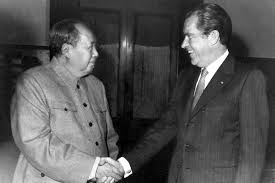 China, whose contemporary rivalry with the United States was officially inaugurated by President Obama’s doctrinal ‘Pivot to Asia’, has been on the receiving end of U.S. economic measures that began to be ramped up during the Trump administration.149 While accusations of its bullying of neighbours over the South China Sea are not without foundation, Beijing has been aggrieved by what it claims is the United States abrogation of its acceptance of a ‘One China’ policy during the 1970s through a series of agreements which followed President Nixon’s historic visit to China in 1972 and the Taiwan Relations Act of 1979. The release by the Chinese Ministry of Foreign Affairs of two policy documents in February 2023, “The Global Security Initiative Concept Paper”151 and “US Hegemony and Its Perils”,152 confirm that China considers itself to be in an adversarial relationship with the United States.
China, whose contemporary rivalry with the United States was officially inaugurated by President Obama’s doctrinal ‘Pivot to Asia’, has been on the receiving end of U.S. economic measures that began to be ramped up during the Trump administration.149 While accusations of its bullying of neighbours over the South China Sea are not without foundation, Beijing has been aggrieved by what it claims is the United States abrogation of its acceptance of a ‘One China’ policy during the 1970s through a series of agreements which followed President Nixon’s historic visit to China in 1972 and the Taiwan Relations Act of 1979. The release by the Chinese Ministry of Foreign Affairs of two policy documents in February 2023, “The Global Security Initiative Concept Paper”151 and “US Hegemony and Its Perils”,152 confirm that China considers itself to be in an adversarial relationship with the United States.
This means that the U.S.-led West will likely face a military alliance of nations led by Russia and China in addition to an alternate economic global framework composed of nations transacting in currencies which will be pegged to gold.
Conclusion
The route from the unipolar world bestridden by the United States after the breakup of the Soviet Union to the contemporary situation of a fast-developing state of multipolarity is one which can be strongly argued to have been facilitated by the mismanagement of United States foreign policy. The influence of neoconservative ideologues who espouse a particularly aggressive form of American exceptionalism, as well as those of the National Security State and interests in the Military Industry, have led the United States from one foreign policy disaster to another.
The era following the ending of the Cold War has been characterised by the conspicuous absence of the employment of sound statecraft of the sort seen in previous generations of leaders. This has created the circumstances in which tensions between Russia and China, both economically and militarily important nations, have been allowed to rise to increasingly intolerable levels. The lack of a genuine application of diplomacy has led to the wholesale dismantling of the nuclear treaty system painstakingly built during the Cold War, as well as to the avoidable creation of a destructive conflict in Ukraine which John Mearsheimer noted has been led down the primrose path with the result of its being wrecked.153 Lee Smith of The Tablet forecasted in an article published the day after the launch of the SMO that by” tying itself to a reckless and dangerous America, the Ukrainians made a blunder that client states will study for years to come.”154
The conflict in Ukraine presents foreseeable openings to an open confrontation between the West and Russia, just as the mishandling of China’s rise, a case study of the ‘Thucydides Trap’,155 threatens a Pacific War in the near future.
It is symptomatic of the present era that American foreign policy has united the Eurasian landmass against it, whereas during the Cold War era it assiduously strove to maintain the divisions between the Russian-dominated Soviet Union and Red China through the endeavour of reopening trade and diplomacy with the latter. The American empire it appears has failed to grasp from its predecessor Anglo-Saxon global power, the British empire, the stratagem of an “economy of enemies” policy.
Equally symptomatic of the times is how U.S. militarism and the weaponization of trade through the use of sanctions, has succeeded in alienating large swathes of the world. It has been estimated that as much as a quarter of the global population is placed under some form of sanctions.156 Many nations in the Global South have reacted negatively to American and Western European criticism of their resistance to joining in the sanctions placed on Russia since the escalation of the war in Ukraine. Members of governments have accused the United States and the EU of hypocrisy in regard to the criteria used for justifying the imposition of sanctions.157 They are also likely weary of the invention of the ‘democracies’ versus ‘autocracies’ rationale for the antagonistic international climate which has been fomented.
The redundancy of the policies pursued are evident in so far as the conflict in Ukraine is concerned: The EU states are facing economic hardship including Germany which is grappling with deindustrialisation. The Ukraine war has also shown that Russia is capable of Industrial warfare in a manner which the United States, with its diminished industrial base, would find hard to match.158 And as with the case of the lengthy engagement in Afghanistan, the billions spent on shoring up a corrupt state is only serving to facilitate a wealth transfer from U.S. taxpayers to military contractors.159
The lack of public debate to which Wesley Clarke referred when explaining how neoconservative ideologues had “hijacked” American foreign policy persists, as does the lack of accountability on the part of the National Security State which in concert with the neoconservative movement has ensured the diminution of American moral prestige around the globe and the growth of its sovereign debt.
These forces have unwittingly assisted in the creation of a Eurasian-centred New World Order.
*
Note to readers: Please click the share buttons above. Follow us on Instagram and Twitter and subscribe to our Telegram Channel. Feel free to repost and share widely Global Research articles.
This article was originally published on Adeyinka Makinde.
Adeyinka Makinde trained for the law as a barrister. He is a visiting lecturer in law at the University of Westminster, London, and has research interests in military history and global security. He has served as a programme consultant and provided expert commentary for BBC World Service Radio, China Radio International, the Voice of Russia and Russia Today.
Notes
- Krauthammer, Charles. “The Unipolar Moment”, Foreign Affairs, January 1st, 1990.
- Fukuyama, Francis. The End of History and the Last Man. Free Press, 1992.
- Defense Planning Guidance for the 1994–99 Fiscal Years, February 18, 1992
- Wes Clark – America’s Foreign Policy “Coup“
- Kagan, Robert (2003) Of Paradise and Power: America and Europe in the New World Order.
- Sachs, Jeffrey D. “Ukraine Is the Latest Neocon Disaster”, Common Dreams, June 28th, 2022.
See also:
Makinde, Adeyinka. “The Syrian Tragedy: Western Foreign Policy and its ‘Useful Idiots’”, Global Research Canada, October 23rd, 2016.
- Glennon, Michael J. “National Security and Double Government.” 5 Harvard National Security Journal 1 (2014).
- Brzeziński, Zbigniew The Grand Chessboard: American Primacy and Its Geostrategic Imperatives, Basic Books, 1997.
- U.S. National Archives. President Dwight D. Eisenhower’s Farewell Address (1961)
- Savranskaya, Svetlana and Blanton, Tom (2017). “NATO Expansion: What Gorbachev Heard”, National Security Archive Briefing Book #613, December 12th, 2017.
- Kennan, George F. “A Fateful Error,” New York Times. February 5th, 1997
See also: WBZ Chicago “Stars & Tsars: A History of U.S.-Russia Relations [Rebroadcast],” (February 13, 2017)
- Matlock, Jack. “I was there: NATO and the origins of the Ukraine crisis”, Responsible Statecraft, February 15th, 2022.
- Kaonga, Gerrard. “Video of Joe Biden Warning of Russian Hostility if NATO Expands Resurfaces,” Newsweek, March 8th, 2022.
- “Speech and the Following Discussion at the Munich Conference on Security Policy”, Kremlin website, February 10th, 2007.
- “Nyet Means Nyet: NATO’s Enlargement Redlines“. Diplomatic cable by William J. Burns
- Brzeziński, Zbigniew The Grand Chessboard: American Primacy and Its Geostrategic Imperatives, 1997.
- Makinde, Adeyinka. “Mutually Assured Destruction (MAD): The Nuclear Debate America Should be Having,” Global Research Canada, October 10th, 2016.
- “Nuclear Test Ban Treaty”. John F. Kennedy Presidential Library and Museum.
- “Anti-Ballistic Missile (ABM) Treaty”. Office of the Assistant Secretary of Defense.
- “Treaty Between The United States of America and The Union of Soviet Socialist Republics on the Limitation of Strategic Offensive Arms (SALT II)”. Archived content at the U.S. Department of State.
- “Treaty Between The United States Of America And The Union Of Soviet Socialist Republics On The Elimination Of Their Intermediate-Range And Shorter-Range Missiles (INF Treaty)”. Archived content at the U.S. Department of State.
- “Treaty on Open Skies: Article-by-Article Analysis”. Archived content at the U.S. Department of State.
- “Bush to withdraw from ABM treaty”, The Guardian, August 24th, 2001.
- Browne, Ryan. “U.S. launches long-awaited European missile defense shield,” CNN, May 12th, 2016.
- Bugos, Shannon. “U.S. Completes INF Treaty Withdrawal”, Arms Control Association website, September 2019.
- Rajagopalan, Rajeswari Pillai. “Implications of the US withdrawal from the Open Skies Treaty,” Observer Research Foundation, May 29th, 2020.
- Cohen, Stephen. War with Russia?: From Putin & Ukraine to Trump & Russiagate. Skyhorse Publishing, New York, 2022.
- Cooper, Michael. “War Puts Focus on McCain’s Hard Line on Russia,” The New York Times, August 12th, 2008.
- Pinchuk, Denis. “Safe in Russia, defiant ousted President Viktor Yanukovych insists he is still Ukraine’s leader,” The Independent, February 28th, 2014.
- Stevenson, Tom. “America and its Allies want to Bleed Russia Dry. They Really Shouldn’t”, The New York Times, May 11th, 2022.
- “Address by President of the Russian Federation”, Kremlin website March 18th, 2014.
- Christie, Edward Hunter. “Sanctions after Crimea: Have they worked?,” NATO Review, July 13th, 2015.
- Karnitschnig, Matthew. “German Businesses Urge Halt on Sanctions Against Russia,” The Wall Street Journal, May 2014.
- Sherwood, Elizabeth D. “Soviet Pipeline Splits U.S., Allies”, The Los Angeles Times, Friday, July 23rd, 1982.
- Ibid.
- UPI. “W. German Firm Defies U.S. Pipeline Embargo”, The New Tribune, Saturday, October 2nd, 1982.
- Chang, Felix K. “Legacy of Ostpolitik: Germany’s Russia Policy and Energy Security”, Foreign Policy Research Institute, May 8th, 2014.
- Hildebrandt, Tina and di Lorenzo, Giovanni. “Did you think I’d come with a ponytail?”, Die Zeit Online, December 7th, 2022.
- Pouvost, Theo. “Hollande: ‘There will only be a way out of the conflict when Russia fails on the ground’”, The Kyiv Independent, December 28th, 2022.
- Hersh, Seymour. “How America Took Out The Nord Stream Pipeline,” Substack, February 8th, 2023.
- Galbraith, James K. “The Dollar System in a Multi-Polar World,” Institute for New Economic Thinking, May 5th, 2022.
- “John McCain Was Right: Vladimir Putin is a Thug”, McCain Institute, February 12th, 2022.
- Rucker, Philip. “Hillary Clinton’s Putin-Hitler comments draw rebukes as she wades into Ukraine conflict”, The Washington Post,March 5th, 2014.
- “Rethinking Putin: A Talk by Professor Stephen F. Cohen”, The Nation YouTube Channel, Delivered on the annual Nation cruise, December 2, 2017.
- Cohen, Stephen, “Who Putin Is Not”, The Nation, September 20, 2018.
Stephen Cohen also forcefully poured scorn over “Russiagate,” by stating that Robert Mueller turned up no credible evidence to back up the allegation. Cohen pronounced the two original documents on which the whole “Russiagate” saga relied on as “impotent”.
- “User Clip: Bush saw Putin’s soul”, C-SPAN
- Troianovski, Anton. “Russia Erupts in Fury Over Biden’s Calling Putin a Killer,” The New York Times, March 18th, 2021. (Biden comments in an interview on ABC with George Stephanopoulos on March 16th, 2021)
- Tapper, Jack. “One-to-one with French President Emmanuel Macron,” CNN, September 23rd, 2022.
- Seddon, Max. “Vladimir Putin, Russia’s resentful leader, takes the world to war,” The Financial Times, February 25th, 2022.
- McClintik, David. “How Harvard Lost Russia”, Institutional Investor, January 13th, 2006
- Ibid.
- Engdahl, F. William. “The Real Crime of M. Khodorkovsky,” Voltaire Net, January 5th, 2011.
- Koenig, Kailani. “James Clapper on Trump-Russia Ties: ‘My Dashboard Warning Light Was Clearly On’,” NBC News, May 28th, 2017.
- Cohen, Stephen. “Russophobia in the New Cold War,” The Nation, April 4th, 2018.
- Galeotti, Mark. “Gangster’s paradise: how organised crime took over Russia”, The Guardian, March 23rd, 2018.
- Cohen, Stephen. “Russophobia in the New Cold War,” The Nation, April 4th, 2018.
- Applebaum, Anne. “Remember, Russia Plays by its Own Rules, Not Ours”, Akron Beacon Journal, (Syndicated Column via Washington Post Writers Group), March 22nd, 2014.
- Makinde, Adeyinka. “’Dear Vlad, Is It Something I Said?’: The Fierce Rivalry Between John McCain and Vladimir Putin”, Global Research Canada, September 5th, 2018.
- Wise, Lindsay. “Lindsey Graham Repeats Call for Russians to Assassinate Putin”, The Wall Street Journal, March 4th, 2022.
- Dobbins, James, Cohen, Raphael S. et al. “Overextending and Unbalancing Russia: Assessing the Impact of Cost-Imposing Options,” RAND Corporation, 2019.
- Address by the President of the Russian Federation, The Kremlin website, February 24th, 2022.
- Sachs, Jeffrey. “The Ninth Anniversary of the Ukraine War,” Jeff Sachs dot Org, February 28th, 2023.
- “Nyet Means Nyet: NATO’s Enlargement Redlines“. Diplomatic cable by William J. Burns
- Interfax-Ukraine. “Yanukovych: Ukraine will remain a neutral state,” Kyiv Post, January 7th, 2010.
- “Hearing Before the Committee on Foreign Relations, United States Senate, January 15, 2014 (Senate Hearing 113-513). Implications of the Crisis in Ukraine”, U.S. Government Publishing Office.
See also:
Von Bota, Alice and Kohlenberg, Kerstin. “Ukraine: Did Uncle Sam buy off the Maidan?” ZEIT ONLINE, May 17th, 2015.
- Byrne, Malcolm (Editor). “CIA Confirms Role in 1953 Iran Coup”, National Security Archive, August 19th, 2013.
- Foreign Relations of the United States, 1952–1954, Guatemala “287. MemorandumPrepared in the Central Intelligence Agency,” Office of the Historian, Department of State.
- Sachs, Jeffrey. “The Ninth Anniversary of the Ukraine War,” Jeff Sachs dot Org, February 28th, 2023.
- Zakaria, Fareed. Transcript of an interview with George Soros on CNN’s “Global Public Square,” broadcast on May 25th, 2014.
- Interview with George Friedman. “The interests of the Russian Federation and the United States in relation to Ukraine are incompatible with each other“. Kommersant on December 19th, 2014.
- Katchanovski, Ivan. “The Far Right in Ukraine During the ‘Euromaidan’ and the War in Donbas.” Paper prepared for presentation at the Annual Meeting of the American Political Science Association in Philadelphia, September 1-4, 2016. See also Whelan, Brian. “Far-right group at heart of Ukraine protests meet US senator,” Channel 4 News, December 16th, 2013.
Note: The members of Pravy Sektor and Spilna Sprava which Israeli news outlets have described as “Fascist” and “neo-Nazi” have met with the Israeli ambassador to Ukraine to give assurances that they are “no longer anti-Semitic.”
- Yevhen Karas speaking in February 2022.
- Katchanovski, Ivan. “The Maidan Massacre in Ukraine: Revelations from Trials and Investigation”, SSRN, March 28th, 2022.
- Ibid.
- Recorded conversation between Asst. Sec. of State Victoria Nuland and Amb. Jeffery Pyatt, YouTube
- Katchanovski, Ivan. “The Russia-Ukraine War and the Maidan in Ukraine,” SSRN
October 24th, 2022.
- The Eisenhower government used the Muslim Brotherhood against the secular government of Gamal Nassar of Egypt; the Carter and Reagan administrations aided foreign and domestic Mujahideen during the Soviet-Afghan War; the Bush administration sought out militant Sunni Islam.
See also:
Hersh, Seymour. “The Redirection”, The New Yorker, March 5th, 2007
Also note the Obama administration utilised Islamists both in Libya (including the Libyan Islamic Fighting Group in engineering the overthrow of Colonel Gaddafi) and Syria where the U.S., in combination with its regional allies, oversaw the infiltration of the country in an operation designed to overthrow the Ba’athist government.
- Ganser, Daniele. NATO’s Secret Armies: Operation GLADIO and Terrorism in Western Europe, Routledge, 2005.
- Pernin, Christopher G., Nichiporuk, Brian et al. “Unfolding the Future of the Long War: Motivations, Prospects and Implications for the U.S. Army, RAND Corporation”, 2007 explicitly refers to the need for fomenting conflict between Sunni and Shia Muslims as a means through which the interests of the West could be served.
See also:
General Clark’s comment during a CNN interview over using Sunni extremists. “Look, ISIS got started through funding from our friends and allies.” Wesley Clark, Supreme NATO Commander: ‘We created ISIS to destroy Hezbollah’
Baldwin, Brook. “Transcript of an interview with former NATO Supreme Allied Commander Wesley Clark” on CNN broadcast on February 11th, 2015.
- Lazare, Daniel. “Who Was Stepan Bandera?,” Jacobin, September 24th, 2015.
- Khromeychuk, Olesya. “The Shaping of ‘Historical Truth’: Construction and Reconstruction of the Memory and Narrative of the Waffen SS ‘Galicia’ Division”, Canadian Slavonic Papers, Vol. 54, No. 3/4, Special Issue: Historical Memory and World War II in Russia and Ukraine, Sept.-Dec. 2012.
See also:
Khromeychuk, Olesya. “Ukrainians in the German Armed Forces During the Second World War”, History, December 2015, Vol. 100, No. 5 (343) (December 2015), pp. 704-724. Published by Wiley.
- Kuzio, Taras. “Yushchenko Finally Gets Tough On Nationalists”, Eurasia Daily Monitor Volume: 1, Issue: 66, August 4th, 2004.
- Stern, David. “Svoboda: The rise of Ukraine’s ultra-nationalists,” BBC News, December 26th, 2012.
- Whelan, Brian. “Far-right group at heart of Ukraine protests meet US senator”, Channel 4 News, December 16th, 2013.
- Ibid.
- Cohen, Josh. “In the battle between Ukraine and Russian separatists, shady private armies take the field,” 2015. Reuters, May 5th, 2015.
- Srulevitch, Andrew. “Why is Putin Calling the Ukrainian Government a Bunch of Nazis?”, ADL, March 4th, 2022.
The unspoken truth is that the political set-up in Ukraine since February 2014 has been an accommodation between Ukrainian Jewish elites and Ukrainian ultranationalists; an arrangement for which the United States government serves as guarantor.
- Rubinstein, Alexander and Blumenthal, Max. “How Ukraine’s Jewish president Zelensky made peace with neo-Nazi paramilitaries on front lines of war with Russia,” The Grayzone, March 4th, 2022.
- “Zelensky signs law on Indigenous peoples of Ukraine”, TASS, July 21st, 2021.
- Walker, Shaun. “Azov fighters are Ukraine’s greatest weapon and may be its greatest threat,” The Guardian, September 10, 2014.
Note: Ultranationalist and neo-Nazi groups have disproportionate, even decisive influence within the Ukrainian military and SBU. Apart from the Azov Battalion members of Svoboda, Splina Sprava, C14 and Pravy Sektor are well represented in different units.
- Kuzmenko, Oleksiy. “Far-Right Group Made Its Home in Ukraine’s Major Western Military Training Hub,” Illiberalism, September 21st, 2021.
- Melanovski, Jason. “Ukrainian military chief photographed with far-right paraphernalia,” World Socialist Website, October 14th, 2022.
- Magnay, Diana and Smith-Spark, Laura “Misery in Ukraine as deadly conflict drives civilians from homes”, CNN, September 2nd, 2014.
- “Poroshenko: ‘Donbas children will sit in cellars, ours’ will go to school’, New Cold War, November 17th, 2014.
- Article 2(4) Charter of the United Nations
- See “United Nations Charter (full text)”, United Nations website.
- Referendums were held in Donetsk Oblast and Luhansk Oblast in May 2014.
See Bering, Juergen. “The Prohibition on Annexation: Lessons from Crimea”, New York University Journal of International Law and Politics, Vol. 49, No. 3, 2017.
- See “United Nations Charter (full text)”, United Nations website.
- Michaels, Daniel. “The Secret of Ukraine’s Military Success: Years of NATO Training”, Wall Street Journal, April 13th, 2022.
- Melanovski, Jason. “Ukraine approves strategy to ‘recover’ Crimea, threatening all-out war with Russia”, World Socialist Web Site, March 19th, 2021.
- Stockholm International Peace Research Institute (SIPRI) Arms Transfers Database generated March 2022.
- “Zelensky’s full speech at Munich Security Conference”, Kyiv Independent, February 19th 2022.
See also: Herszenhorn, David M.; Lynch, Suzanne and Anderlini, Jamil. “A defiant Zelenskiy promises Ukraine will defend itself ‘with or without’ allies,” February 19th, 2022.
- “The military operation in Ukraine, including Kiev, is aimed at disarming Ukraine. Russia will not let Ukraine obtain nuclear weapons,” Sergey Lavrov. See “Russia will not let Ukraine obtain nuclear weapons — Lavrov,” TASS, March 2nd, 2022.
- “700,000 soldiers defending Ukraine now, Zelenskyy says, as battles rage in the Donbas”, Euronews, May 21st, 2022.
- Romaniuk, Roman. “Possibility of talks between Zelenskyy and Putin came to a halt after Johnson’s visit – UP sources”, UkrayinskaPravda, May 5th 2022.
See also:
Weng, Heili. “Ex-Israel PM: West foiled peace talks,” China Daily (Hong Kong), February 13th, 2023,
- Stevenson, Tom. “America and Its Allies Wants to Bleed Russia. They Really Shouldn’t”, The New York Times, May 11th, 2022.
See also:
Masters, Jonathan, and Merrow, Will. “How Much Aid Has the U.S. Sent Ukraine? Here Are Six Charts”, Council on Foreign Relations, February 23rd, 2023.
- Barnes, Julian E.; Cooper, Helene and Schmitt, Eric. “U.S. Intelligence Is Helping Ukraine Kill Russian Generals, Officials Say”, The New York Times, May 4th, 2022.
- Khurshudyan, Isabelle; Lamothe, Dan, Harris, Shane and Sonne, Paul. “Ukraine’s rocket campaign reliant on U.S. precision targeting, officials say,” The Washington Post, February 9th, 2023.
- Ritter, Scott. “Ukraine is winning the battle on Twitter, but in the real world Kiev is losing Donbass”, RT, May 1st, 2022.
RT is blocked in a number of NATO-affiliated Western countries. Ritter’s article can be viewed at Archive Today
The Russian forces pretence to be embarked on an attempt to lay siege to Kiev and take the capital was textbook Maskirovka or military deception. Russian convoys headed towards Kiev stationed themselves in a location at which they pretended to move in different directions. At the same time, Russia’s ally Belarus began assembling troops across the border giving the impression of being poised to join in an attack on the city. But the Belarus military ceased its activity once the Russian forces proceeded to join other Russian units in the main offensive in the Donbas. The “feint-in-force” succeeded in tying down over 100,000 Ukrainian troops stationed in and around Kiev while the Russians took control over the transportation routes between Kiev and the Donbas. The manoeuvre enabled the Russians to conduct a major offensive against 20,000 Ukrainian troops in the city of Mariupol who were encircled and later forced to surrender.
- Novelly, Thomas. “Ukraine’s Fighter Ace ‘Ghost of Kyiv’ May Be a Myth, But It’s Lethal as War Morale,” Military dot com, March 2nd, 2022.
- Lendon, Brad; Lister, Tim and Pennington, Josh. “Soldiers on Snake Island reacted with defiant words to threats from Russian warship,” CNN, February 28th, 2022.
See also:
“Snake Island defenders freed in prisoner swap with Russia,” The Telegraph, November 26th, 2022.
- “Russian top brass calls Kiev’s shelling of Zaporozhye NPP act of nuclear terrorism”, TASS, August 8th, 2022.
See also: Reuters. “Ukraine nuclear power station shelled, UN nuclear watchdog says”, CBNC, November 20, 2022.
- Sweeney, Steve. “Ukrainian former human rights chief admits promoting fake news to convince west to send more arms”, Morning Star, June 10th, 2022.
See also:
Burdyha, Igor. “Why Ukraine’s human rights chief Lyudmila Denisova was fired,” DW, June 3rd, 2022.
- “Fragments of Tochka-U missile used by Ukrainian army found on Kramatorsk strike site”, TASS, April 8th, 2022.
- “Polish official: There is evidence that Ukrainian air defense missile fell in Przewodow”, The Kyiv Independent, November 17th, 2022.
- “the next step of escalation of the situation in Ukraine” (Polish prime minister Mateusz Morawiecki); “strongest possible response” (European commission president Ursula Von der Leyen).
See:
Oltermann, Philip; Beaumont, Peter and Sabbagh, Dan. “European leaders blame sabotage as gas pours into Baltic from Nord Stream pipelines” Nord Stream 1 pipeline”, The Guardian, September 28th, 2022.
“Russia’s role in Nord Stream leaks ‘increasingly plausible’: Polish FM,” Polskie Radio, September 29th, 2022.
- Entous, Adam; Barnes, Julian E. and Goldman, Adam. “Intelligence Suggests Pro-Ukrainian Group Sabotaged Pipelines U.S. Officials Say“, New York Times, March 7th, 2023.
- Goldberg, Jeffrey. “The Obama Doctrine,” The Atlantic, April 2016 issue.
- Stevenson, Tom. “America and its Allies want to Bleed Russia Dry. They Really Shouldn’t”, The New York Times, May 11th, 2022.
- “EU sanctions against Russia following the invasion of Ukraine”, Official Website of the European Union.
See also:
“EU sanctions against Russia explained,” Consilium.
- “The Russian Economy is in Tatters”. Post at the official Facebook page of the European Commission, September 17th, 2022.
- Dams, Jan; Doll, Nikolaus; Jungholt, Thorsten; and Schuster, Jacques. “Die Regierung nimmt die Deindustrialisierung mutwillig in Kauf”, Welt, November 22nd 2022.
See also:
“Why the West’s oil sanctions on Russia are proving to be underwhelming”, The Economist,
- Ukraine: John McCain: “Russia is a gas station”.
- Bertrand, Arnaud. “Is America the Real Victim of Anti-Russia Sanctions?” Tablet Mag dot com, May 25th, 2022.
- Dams, Jan; Doll, Nikolaus; Jungholt, Thorsten; and Schuster, Jacques. “Die Regierung nimmt die Deindustrialisierung mutwillig in Kauf”, Welt, November 22nd 2022.
- “Conflicting views on trade”, Opinion piece, St. Joseph Gazette,August 16th, 1982.
- Ellyat, Holly. “German minister criticizes U.S. over ‘astronomical’ natural gas prices,” CNBC, October 5th, 2022.
- Caulcutt, Clea and Leali, Giorgio. “Macron to Biden: C’mon, we’re allies”, POLITICO, November 22nd, 2022.
- Jenkins, Simon. “The rouble is soaring and Putin is stronger than ever – our sanctions have backfired,” The Guardian, July 29th, 2022.
- Ibid.
- Ibid
- “Russia doing better than expected despite sanctions over war in Ukraine, IMF says”, South China Morning Post, July 227th, 2022.
- “How Russia dodges oil sanctions on an industrial scale”, The Economist, January 29th, 2023.
- Mulder, Nicholas. “The Sanctions Weapon,” International Monetary Fund Media Center, June 2022.
- Lee, Matilda. “Russia’s war on western food is leading to a national cheese revival | Guardian sustainable business,” The Guardian, September 7th, 2015.
- Mackinder, Halford. “The Geographical Pivot of History”, The Geographical Journal
Vol. 23, No. 4 (April 1904), pp. 421-437. Published by the Royal Geographical Society (with the Institute of British Geographers).
- Mackinder, Halford J. Democratic Ideals and Reality, Henry Holt, New York 1942.
- Ibid.
- For modern interpretations of Mackinder’s theory see for instance:
Scott, Margaret and Alcenat, Westenley. “Revisiting the Pivot: The Influence of Heartland Theory in Great Power Politics”, 2008.
Iseri, Emre. “The US Grand Strategy and the Eurasian Heartland in the Twenty-First Century”, Geopolitics, Volume 14, 2009.
- Friedman, George. The Next Decade, Doubleday, New York, 2010.
- Friedman, George. “Europe: Destined for Conflict?”, Lecture before the Chicago Council on Global Affairs, February 23rd, 2015.
- Devonshire-Ellis, Chris. “The New Candidate Countries For BRICS Expansion”, Silk Road Briefing, November 9th, 2022.
- Dulaney, Chelsey; Gershkovich, Evan and Simanovskaya, Victoria. “Russian turning to the Chinese Yuan in a bid to marginalise the U.S. dollar”, The Wall Street Journal, February 28th, 2023.
- Tang, Frank. “China overtakes US as No 1 in buying power, but still clings to developing status”, South China Morning Post, May 21st, 2020.
- Chin, Gregory T. “The Evolution of the New Development Bank (NDB) at Six and Beyond – A New Commentary Series,” Global Policy Journal, April 14th, 2022.
- “Russia Rethinks The Eurasian Economic Union”, Russia Briefing News, March 15th, 2023.
But see also:
Lehne, Stefane. “After Russia’s War Against Ukraine: What Kind of World Order?,” Carnegie Europe (Carnegie Endowment for International Peace), February 28th, 2023.
- Kottasová, Ivana; Pokharel, Sugam and Gigova, Radina. “Putin lambasts the West and declares the end of ‘the era of the unipolar world’”, CNN, June 18th, 2022.
See also:
The unipolar model was significantly fractured by Putin’s speech to the United Nations General Assembly on September 28th, 2015 shortly after which Russian forces intervened in the Syrian war. See Makinde, Adeyinka. “Vladimir Putin and the Patterns of ‘Global Power’”, November 2nd, 2015.
- Kaul, Apoorva. “Russian President Putin Criticizes ‘golden Billion’ Model; Calls It ‘unfair & Racist’”, Republic World, July 20th, 2022.
See also:
Putin’s speech in October 2022 at the Valdai Discussion Club referred Russia’s desire to rekindle friendships with its Soviet-era allies and “non-Western friends” for creating a new world order. The title of the forum which was held in Moscow from October 24-27 was “A Post-Hegemonic World: Justice and Security for Everyone”.
“Valdai International Discussion Club meeting,” Kremlin Website, October 27th, 2022.
Kibii, Eliud. “A new multipolar world is being born — Russian envoy”(Interview with Dmitry Maksimychev), The Star, March 7th, 2023.
- Tellez, Anthony. “Here Are All The U.S. Sanctions Against China,” Forbes, February 8th, 2023.
- Liff, Adam P. and Lin, Dalton. “The ‘One China’ Framework at 50 (1972–2022): The Myth of ‘Consensus’ and Its Evolving Policy Significance”, The China Quarterly, Cambridge University Press, Volume 252, September 2022.
See also:
Echols, Conor. “As Pelosi Taiwan visit looms, Menendez bill would ‘gut’ One China policy,”Responsible Statecraft, August 1st, 2022.
- “The Global Security Initiative Concept Paper”, Ministry of Foreign Affairs of the People’s Republic of China, February 21, 2023.
- “US Hegemony and Its Perils”, Ministry of Foreign Affairs of the People’s Republic of China, February 20, 2023.
- John J. Mearsheimer, R. Wendell Harrison Distinguished Service Professor of Political Science at the University of Chicago, in speech “UnCommon Core: The Causes and Consequences of the Ukraine Crisis”, September 2015.
Video:
“Why is Ukraine the West’s Fault? Featuring John Mearsheimer,” University of Chicago YouTube Channel, uploaded September 25th,2015.
- Smith, Lee. “Ukraine’s Deadly Gamble,” The Tablet, February 25th, 2022.
- Allison, Graham, “The Thucydides Trap: Are the U.S. and China Headed for War?”, The Atlantic, September 24th, 2015.
- MaCleod, Alan. “With a Quarter of the World’s Population Under US Sanctions, Countries Appeal to UN to Intervene”, Mint Press News, March 27th, 2020.
- “Jaishankar jibes Europe’s hypocrisy on Russian energy purchase; ‘Only Indian money funding war?‘” Hindustan TimesYouTube Channel.
In February 2023, Jaishankar also stressed that the world was “rebalancing” and “less Euro-Atlantic”. His thinly veiled words directed to the West he noted that “there are still people in the world who believe that their definition, their preferences (and) their views must override everything else”. ‘Old, Rich, Opinionated And Dangerous…’: S. Jaishankar Hits Back At Billionaire George Soros, CNBC-TV18, February 18th, 2023.
- Vershini, Alex. “The Return of Industrial Warfare”, Royal United Services Institute (RUSI), June 17th, 2022.
Note: The Russian military complex has demonstrated its ability to ramp up and produce vast quantities of weapons, equipment and ammunition during the Ukraine War. (Infantry fighting vehicles, missiles, rockets artillery systems). The U.S. does not have the industrial base dedicated to production of military equipment to this scale.
- Makinde, Adeyinka. “War Is a Racket: The US War in Afghanistan Validates General Smedley Butler,” Global Research Canada, August 24th, 2021.
Featured image is from the author
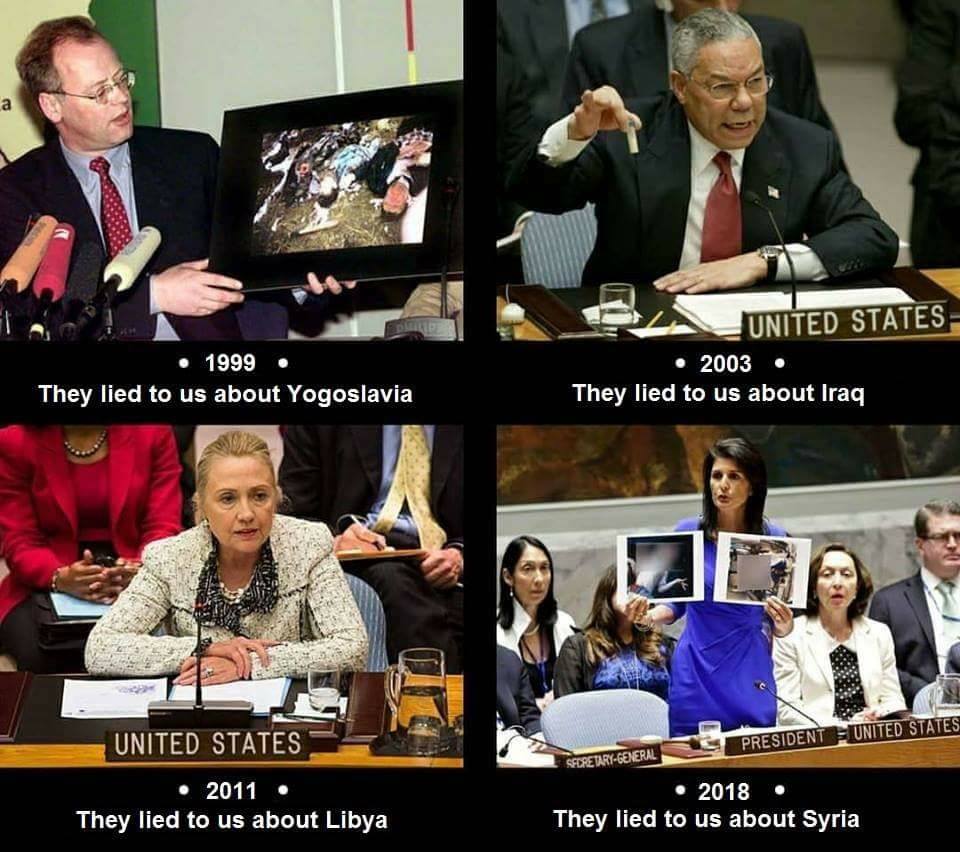















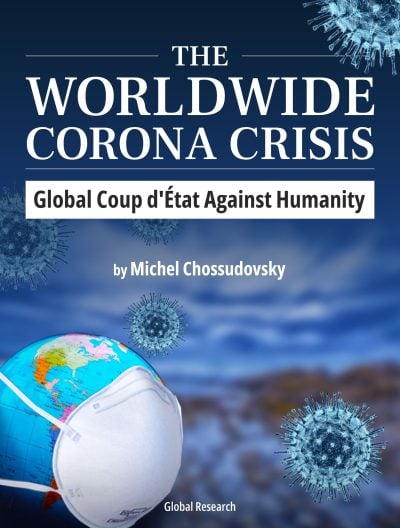 The Worldwide Corona Crisis, Global Coup d’Etat Against Humanity
The Worldwide Corona Crisis, Global Coup d’Etat Against Humanity
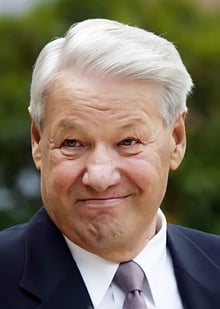
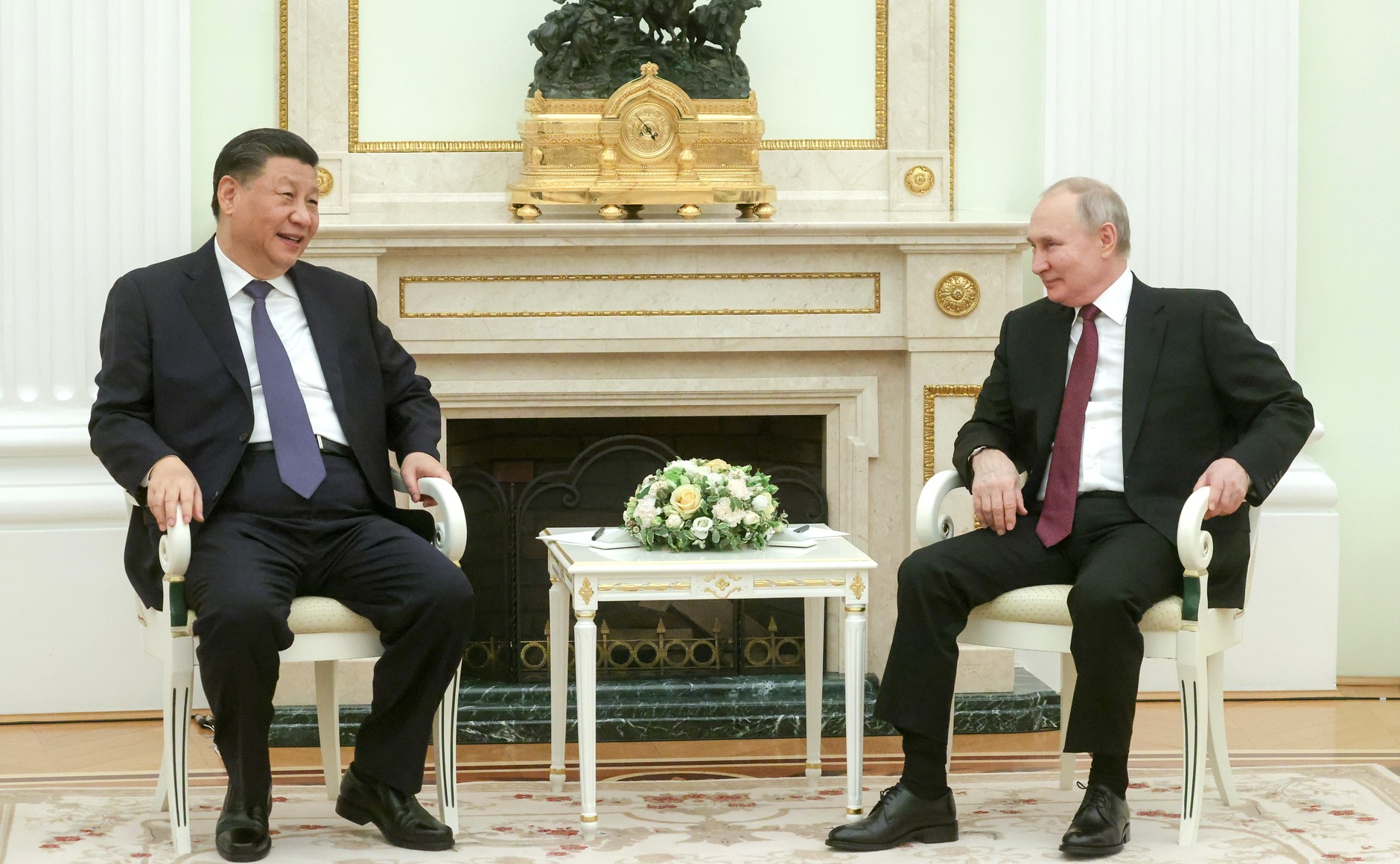
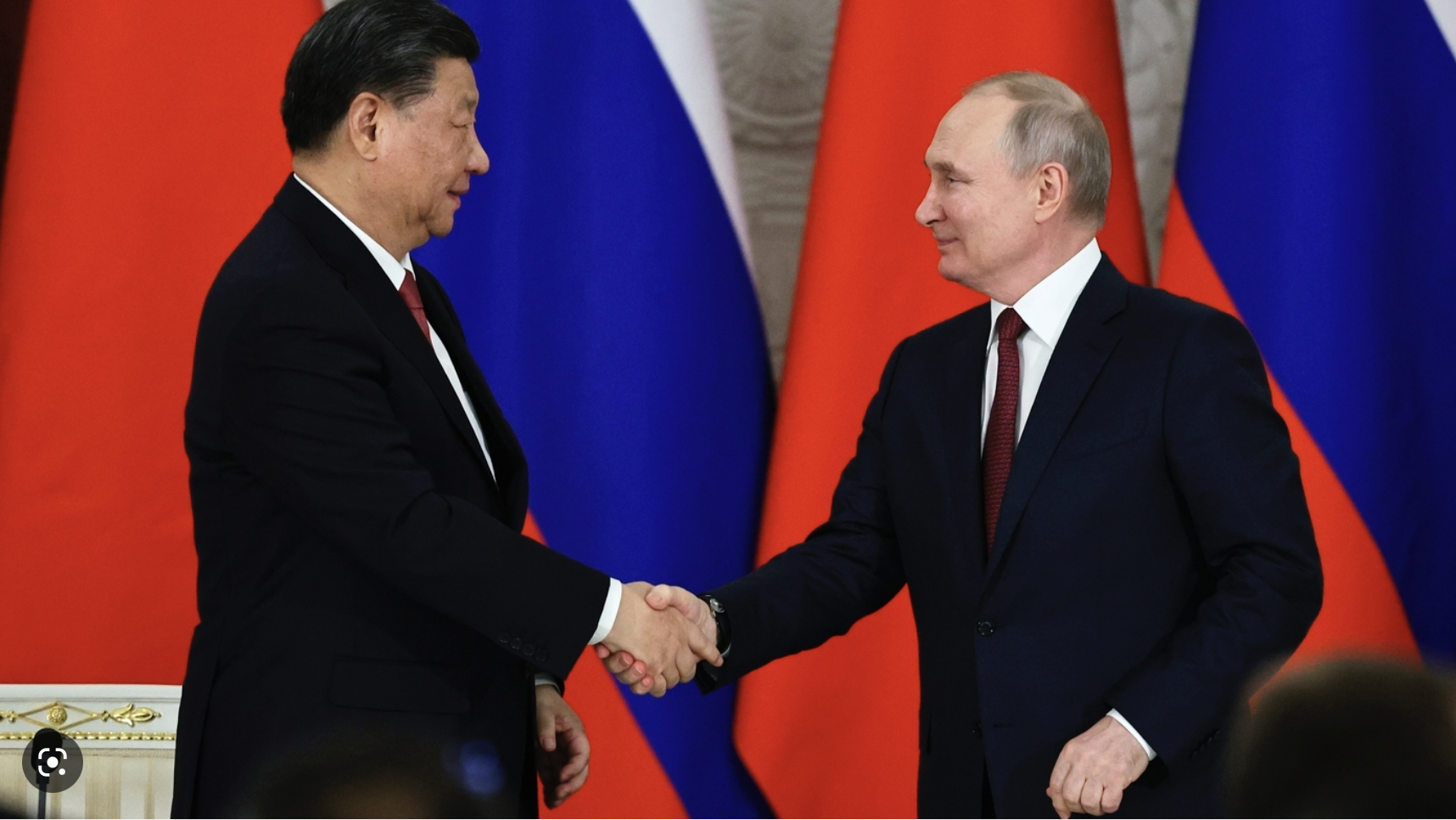
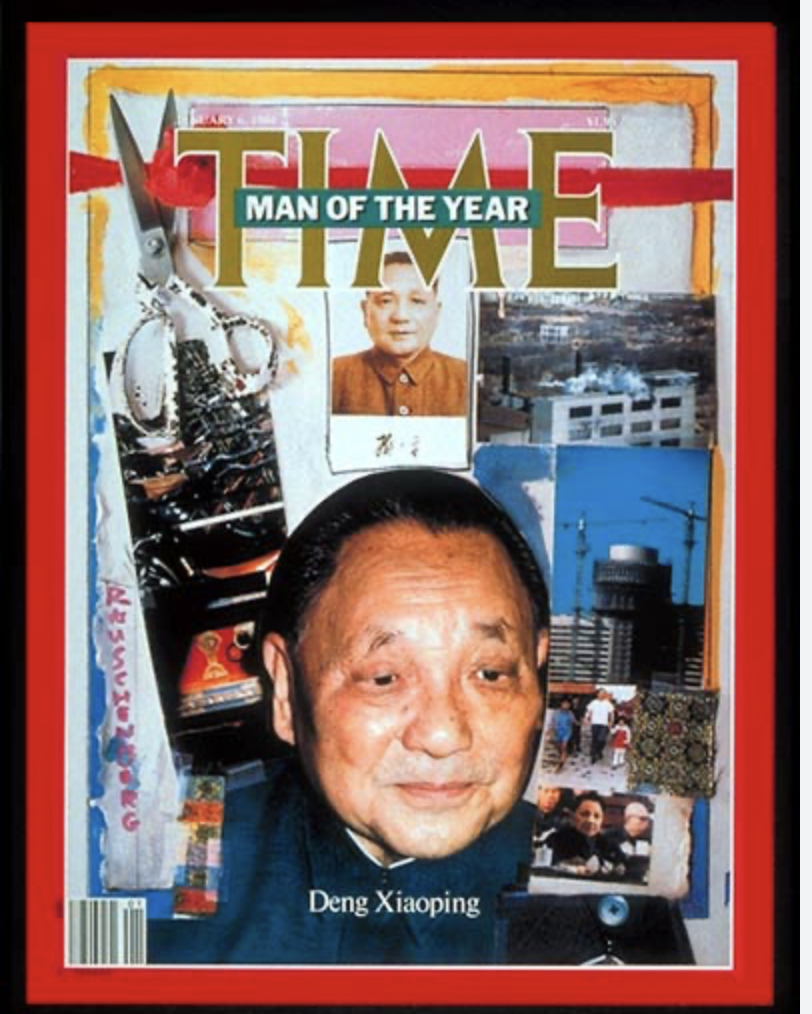 Now, as for China, since the normalization of diplomatic relations with the U.S. in 1972, and under the regime of Deng Xiaoping, China was “a good boy to the West” by preventing global inflation, offering (Made in China) factories and (cheap labor) assembly lines as well as markets for the West’s goods and services.
Now, as for China, since the normalization of diplomatic relations with the U.S. in 1972, and under the regime of Deng Xiaoping, China was “a good boy to the West” by preventing global inflation, offering (Made in China) factories and (cheap labor) assembly lines as well as markets for the West’s goods and services.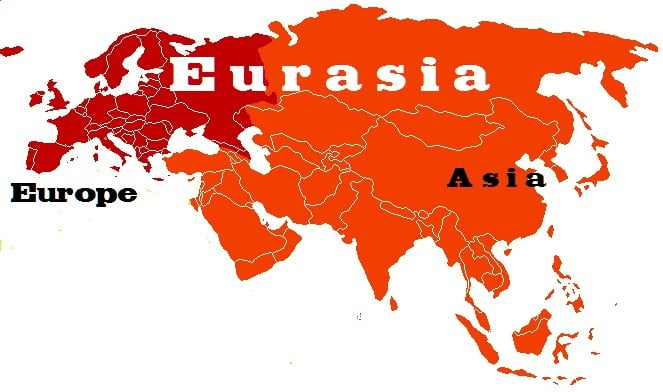
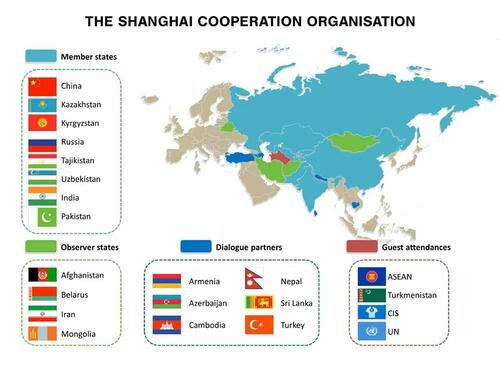
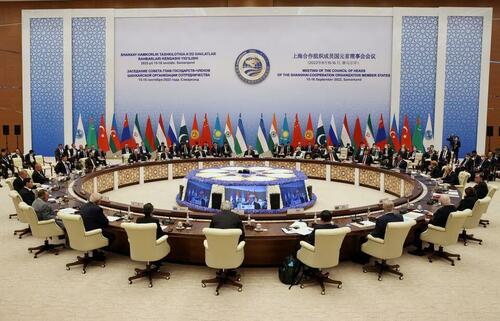


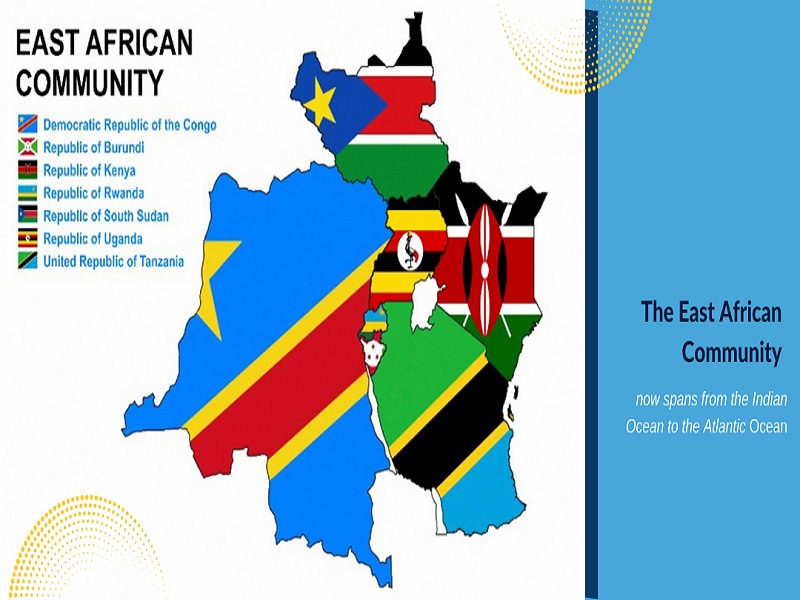
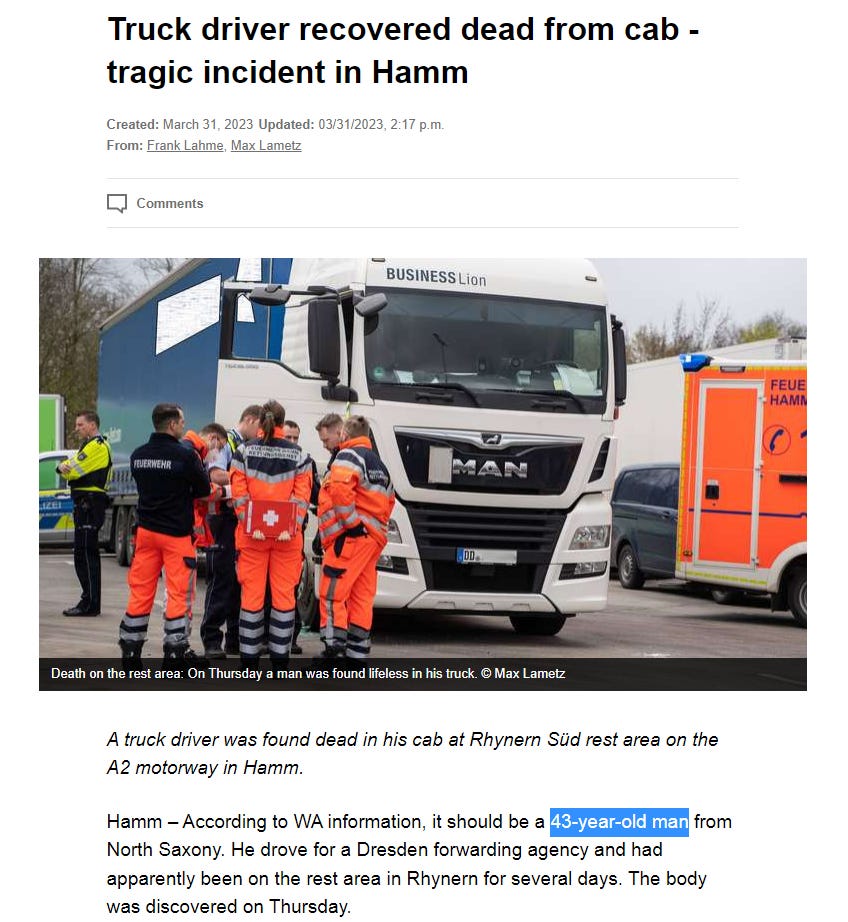






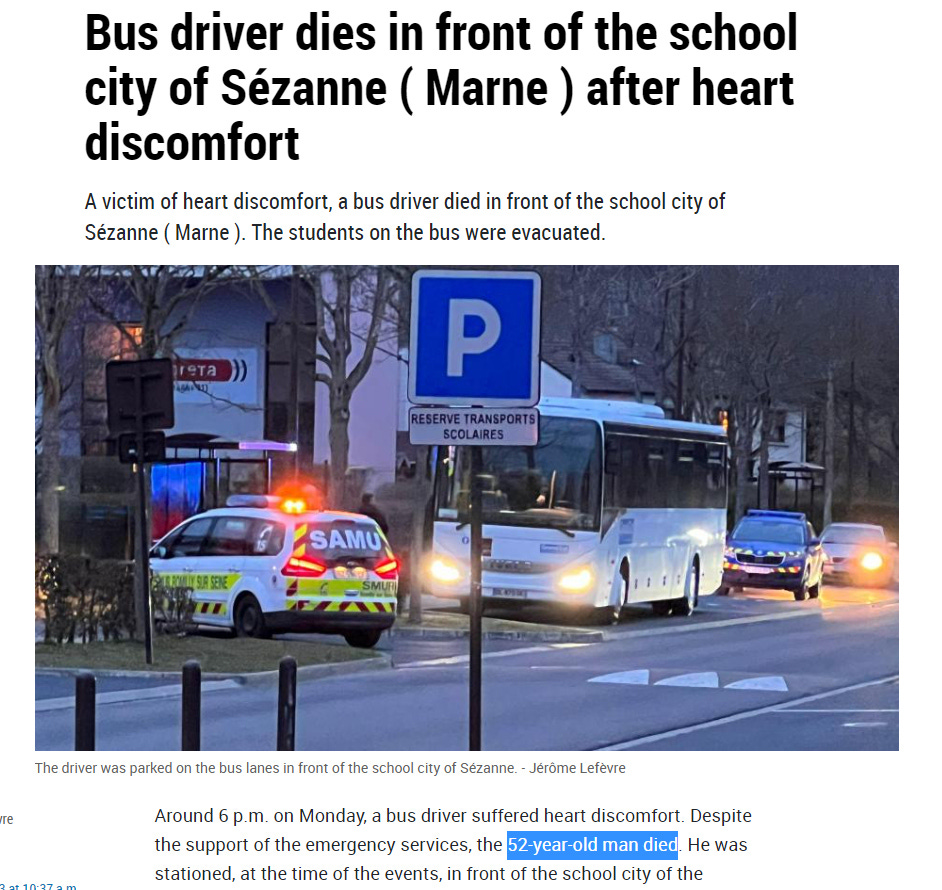



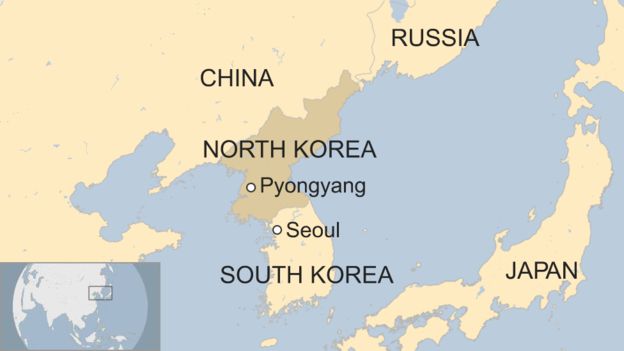
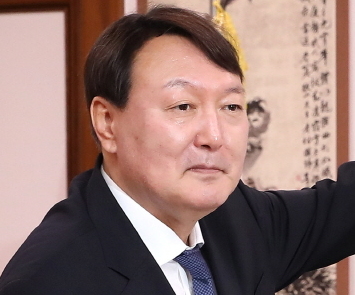 The current Yoon administration represents the final stage of decay for the government of the Republic of Korea, suggesting to us that only a complete restructuring of not only the government, but the entire philosophy of governance, an affirmation of the contract between the citizens and the government, can cure the horrific privatization of all government functions undertaken by the Yoon Administration.
The current Yoon administration represents the final stage of decay for the government of the Republic of Korea, suggesting to us that only a complete restructuring of not only the government, but the entire philosophy of governance, an affirmation of the contract between the citizens and the government, can cure the horrific privatization of all government functions undertaken by the Yoon Administration.